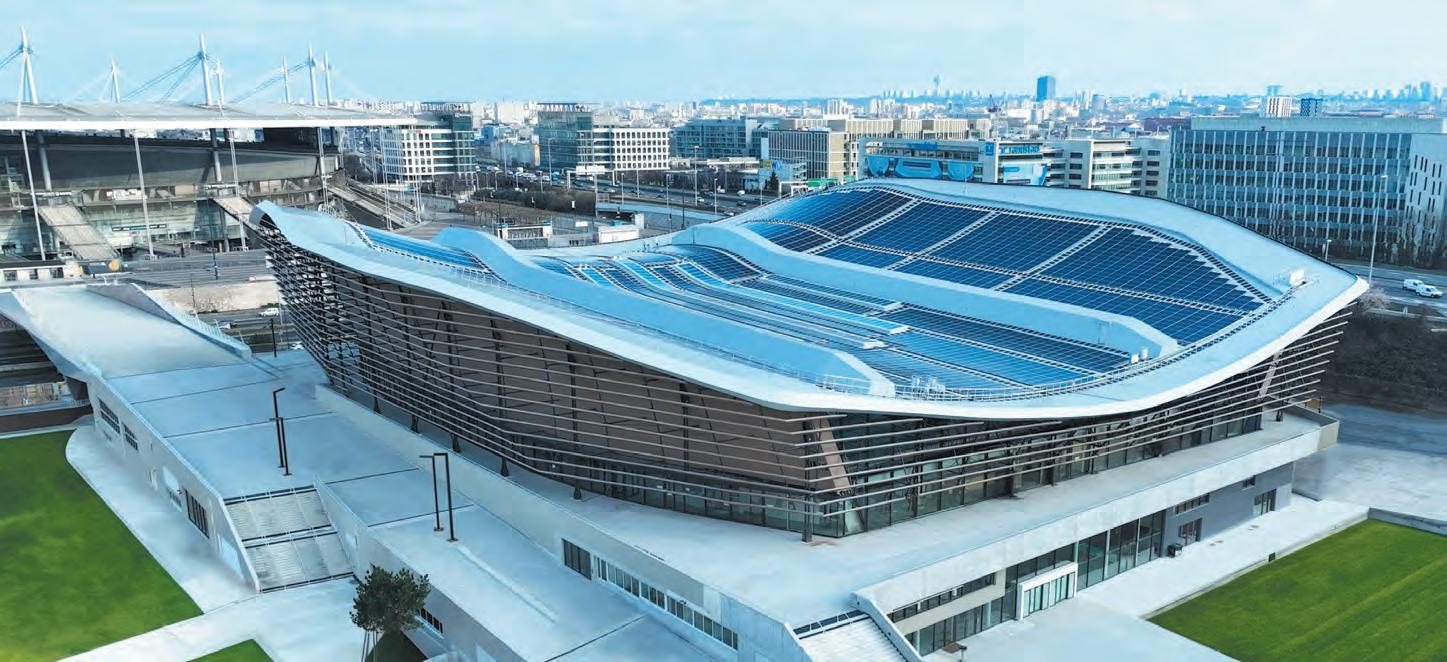







A unique opportunity for investors and developers in the heart of Riyadh, Saudi Arabia, a G20 capital city









A unique opportunity for investors and developers in the heart of Riyadh, Saudi Arabia, a G20 capital city

WELCOME to MIPIM, an opportunity to turbocharge your business with face-to-face meetings, networking and market insights in an extraordinary melting pot that we are proud to curate. This year, we have dubbed the event MIPIM: The Global Urban Festival, to reflect the depth and diversity of the MIPIM community. Real estate is always the sum of its human parts — from investors to end-users — and has a notable social role.
Real estate has an environmental impact too, and for that reason, MIPIM 2024 is our most sustainable exhibition to date, distinguished by four main engagements to make MIPIM cleaner, greener, more diverse and more equitable. These themes include waste minimisation, carbon reduction, social impact and diversity, equity and inclusion. Issues like diversity and accessibility are at the heart of property’s human dimension and are themes we will explore both with dedicated sessions and the launch of MIPIM Challengers, our next-generation initiative. Some 16 professionals under the age of 30 have been carefully selected to participate at MIPIM as MIPIM Challengers, providing them with a platform to influence decision-makers and industry leaders.
MIPIM will host five stages in total. Our Road to Zero area showcases exhibitors who are at the forefront of environmental change, with an exciting programme of conferences reflecting this vital theme. The Leaders’ Perspective Stage is focused on forecasts from those making waves in the industry, while The Asset Class Stage looks at the main asset classes to gain insight into the direction of the market. The Geo
Nicolas Kozubek MIPIM DirectorFocus Stage examines specific local markets, while the Make It Happen Stage will feature conversations about operational excellence and practical solutions to address current market issues. Our keynote speaker, meanwhile, continues the responsible leadership theme. Former Prime Minister of Finland (2019-2023) Sanna Marin will open our exciting four-day programme today with her unique insights. On Thursday, meanwhile, we will be handing out awards for some of the most visionary and sustainable projects in the world at the MIPIM Awards. Investment is always a core element of MIPIM, with over one third of our delegates from the investor community. As global macroeconomic headwinds continue, MIPIM 2024 promises to be a crucial occasion for public and private stakeholders to secure vital capital investment to support building and regeneration projects. The continued popularity of our Re-Invest Summit, attended by the world’s leading investors, underscores MIPIM’s critical role as the premier venue for discussing the latest trends, strategies and opportunities. We are glad you are a part of the MIPIM movement and look forward to supporting your big wins at this year’s event.




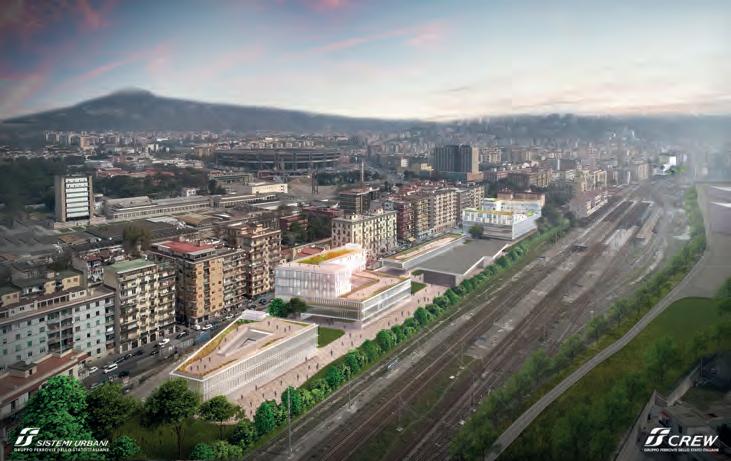

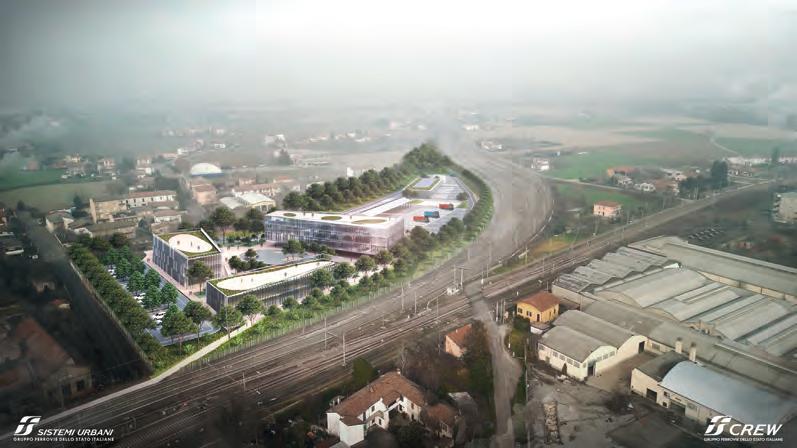
ROMA TRASTEVERE • ROMA TIBURTINA • TORINO LINGOTTO TORINO PORTA SUSA • VARESE VOGHERA • NAPOLI CAMPI FLEGREI NAPOLI PORTA EST
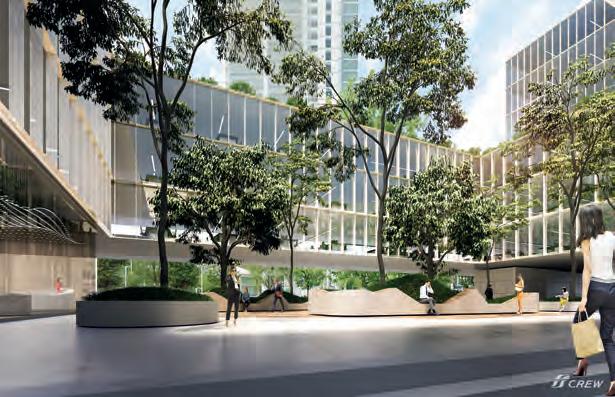
COME VISIT
FS SISTEMI URBANI
AT STAND R9. N

15.10
Sanna Marin is the former Prime Minister of Finland (20192023) and the leader of the Finnish Social Democratic Party. Appointed at the age of 34, Marin served as the youngest Prime Minister of the world when taking office in 2019. In 2015, Marin was elected to Parliament on her first run, where she was a member of the Grand Committee, Legal Affairs Committee and Environment Committee. She has also served as Chair of the Social Democratic Party since 2020. Marin’s government has been considered one of the most successful in handling the COVID-19 pandemic, especially in terms of lost lives and economical damage caused by the pandemic. Following the Russian invasion of Ukraine, Marin led her country through the most swift NATO accession process in the whole history of the alliance. Marin now specialises in topics of geopolitics, strategic autonomy, climate change and female leadership.
Macroeconomics, architecture, UK opportunities, resilience, Japanese timber buildings, German investment, living assets, geopolitical impacts, ESG trends, Italian development, hospitality outlook
Infrastructure: Smart investment strategies in Southern European real assets

Development:
Dozens of innovative projects breaking ground around the globe

All the session details, expert speakers, conferences and events, to help you plan your time at MIPIM and make the most of the latest research, insights and debate
Klara Geywitz, Germany’s Federal Minister for Housing, Urban Development and Building, joined a stellar line-up of speakers at the Housing Matters! event on Monday at MIPIM (see page 7)



Métropole francophone des Amériques

PROGRAMMATION
Conférence
Innovation :
Réfection abritée de façades - Étude de cas
Présentée par

Mercredi 13 mars, 14 h





Cocktail réseautage Montréal / Québec
Mercredi 13 mars, 16 h 30










STAND P-1.K2
Conférence Investissement :
Opportunités d’investissements à Montréal
Présentée par

Jeudi 14 mars, 15 h




Partenaire média




 Photo : Loïc Romer
Photo : Loïc Romer

‘A housing crisis is a reality’

REAL ESTATE professionals must “ask themselves some questions” about “the vertical of housing” in the face of changing lifestyles, increasing urbanisation of populations, and the lack of access to homes felt by so many, a MIPIM speaker and co-living expert has said.
In a packed Grand Auditorium at the start of a one-day conference on housing yesterday, Gui Perdrix’s comments set the scene for sessions on the challenges and opportunities within the residential sector.
On stage with Perdrix at the Housing Matters! event was MIPIM director Nicolas Kozubek, who noted that last year’s residential-focused MIPIM had identified worrying trends within housing and that more serious implications were now being realised widely across the industry.
“What everybody is calling a housing crisis was already nascent a year ago,” he said. “Now it’s a reality in the mainstream.”
Kozubek said city dwellers in developed countries were suffering the most as a result of high housing costs and lack of development to keep track with demand.
He called on the industry to work more jointly and collaboratively to deliver more housing, and for more “cross-sector” co-operation between “key stakeholders”.
He warned that there needed to be more strategic and innovative thinking in the way housing development was planned out, with solutions that were as “creative as possible”.
Kozubek and Perdrix’s opening chat led into a session entitled Understanding The Current Housing Landscape, hosted by Kelsea Crawford, chief executive of Paris-based architecture and design studio, Cutwork. Joining her on stage were Olivier Durix, executive vice-president of offers and clients at Bouygues Immobilier; Sonia Lavadinho, founder and chief executive of Bfluid; and Michal Mlynár UN Assistant Secretary-General and acting executive director of UN-Habitat.
On the subject of need for housing globally, Mlynár highlighted the desperate plight suffered by a huge proportion of the world’s population. He pointed to the fact that approximately 2.8 billion people currently live without adequate housing around the world, with another 1.1 billion estimated to live in slums.
“This challenge is certainly not only for developing countries,” he said. Though it is well beyond what is currently deliverable, Mlynár said that in order to meet the demand for adequate housing around the world, some 96,000 new homes would need to be built every single day.





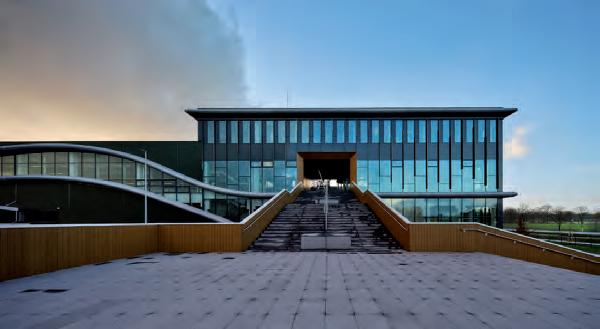
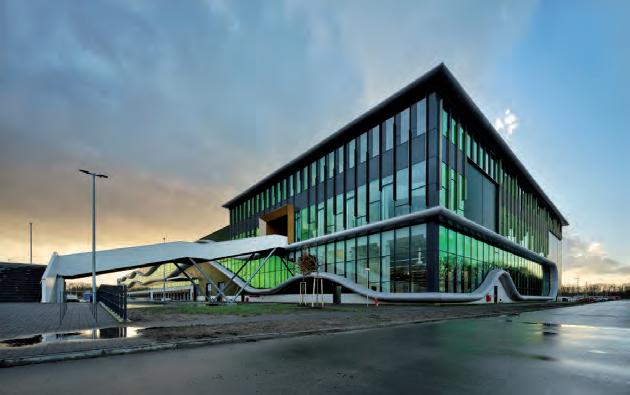
European Distribution Centre for Levi Strauss & Co. with 73,000 m² GFA Warehouse with fully automated intralogistics and high-quality office space
Cradle to Cradle optimized, LEED Platinum & Well Platinum certified 30,000 m²/3.5 MWp solar panels and geothermal energy system
Comprehensive initiatives to achieve whole life carbon positivity
Fusion of sustainability, functionality and aesthetics








THE NEED for emergency housing will be among the chief challenges of the coming decade, “requiring an innovative and sustainable approach to meet the growing demand for shelter and efficient construction”, according to Patrick Coulombel, co-founder of the Architectes de l’Urgence (Emergency Architects) foundation. Citing “global warming, natural disasters and refugee migrations”, Coulombel said that “adaptive solutions” would come to the fore amid the need to “quickly rehouse thousands of people while respecting the constraints of preserving resources and integrating risks into construction”.
International organisation Architectes de l’Urgence was founded to help people in distress, prioritising a return to decent living condi-
tions as soon as possible in cases of disaster. Since its creation in 2001, emergency architect teams have intervened in more than 30 countries, working on reconstruction, erecting houses, and building schools and other essential infrastructure. Coulombel noted that climate risks and geopolitical factors had increased the rate of such displacements around the world.
Yet he also acknowledged the complexities of creating solutions in a world of limited resources.
“How can technical and budgetary constraints be reconciled with a sustainable development approach, while integrating the re-use of materials and the involvement of beneficiaries?” he asked.
“Collaboration between international architects, NGOs and companies and industrialists present
at MIPIM is essential to meet this challenge. Together, they must rethink emergency construction in a context of dwindling resources and the need for sustainability,” Coulombel added.
“Investments in education, vocational training and the creation of economic opportunities are key to reducing incentives to migrate, while access to water and energy is crucial to stabilising populations in developing regions.
“By combining these three approaches — investment in education and the economy, access to basic resources, and the use of sustainable materials — it is possible to address the challenges linked to migration, population stabilisation and construction economics. This is how we can shape a more balanced and prosperous future for all.”

T HE REAL estate industry may have “stronger, vintage years” ahead as more attractive opportunities to invest in a broad range of assets emerge, the head of a major European investment firm has said.
Annette Kröger, PIMCO Prime Real Estate’s European chief executive, has said that the firm she runs is gearing up to capitalise on the increasing opportunities in the markets, particularly those within real estate debt and equity. She said: “In particular, an active approach to lending and real estate debt, with opportunities chosen on a select, disciplined basis, will be key to successfully navigating the year ahead.
“Equity investments could be very targeted, reflecting the vintage and value opportunities that will
become increasingly apparent.”
Kröger accepted that there is a need to remain “prepared for un-
 PIMCO’s Annette Kröger
PIMCO’s Annette Kröger
certain markets, given the wider macro-economic and geopolitical environment”, but said that the outlook was looking more positive as 2024 goes on. She said various sectors and sub-sectors were presenting opportunities which PIMCO, formerly known as Allianz Real Estate, is following with interest.
“In terms of equity, opportunistic and distressed markets are showing opportunities though we also anticipate core and core+ segments to become appealing for those with dry powder as we move into a new cycle and possibly stronger, vintage years,” she said.
“Despite the sector uncertainty over the past two years, we believe that some elements of the market have remained consistently strong, relatively speaking. Highly
specialised strategies with secular tailwinds such as data centres, for instance, have weathered well.”
Kröger said that real estate assets, particularly those within the office sector, were benefiting from a marked return to on-site working and greater desire for personal and social interaction.
“We are seeing a renaissance in face-to-face interaction post-COVID. Much as many corporates and businesses are evolving with regards to work-from-home — with a renewed focus and energy on attracting employees back into the office — events such as MIPIM remind us of the power of relationships and the importance of connecting in real life.”
Allianz Real Estate was renamed as PIMCO Prime Real Estate in January last year, a little over two years after parent company PIMCO assumed overall control of the firm.

THE ISLAND of Malta is rich with opportunities for real estate buyers seeking prime residential and tourism properties, the head of the country’s property investment body has said.
Investors are being invited to meet with members of the Property Malta Foundation at MIPIM, led by chairperson Sandro Chetcuti, to learn about the great potential the Mediterranean country offers. Chetcuti said that an “exceptional” post-pandemic recovery combined with high economic growth rates and low unemployment makes Malta one of the jewels in European real estate investment. “This is happening in one of the smallest EU countries, smack in the middle of the crystalline Mediterranean,
with 300 days of sunshine and a history, architectural and cultural heritage spanning seven millennia,” he said. “The country boasts a cosmopolitan lifestyle, extensive connectivity by air and is sixth in ICT adoption in Europe.”
Malta is becoming increasingly attractive to “investors, top-tier professionals and managers and highnet-worth individuals” both for property acquisitions and as a place to live and work, Chetcuti added.
“I am here to lead a delegation of property developers, estate agents and property owners interested in selling residential and commercial properties to foreigners. We assist them to promote the sale of local developments, apartments, luxury villas, authentic houses of character
on an international level.
“Our task is to position Malta as a leading destination of choice for those interested in purchasing property of substantial value right in the middle of the Mediterranean.”
Chetcuti acknowledged that tough conditions both before and since COVID have negatively affected investor confidence across the board, but that Malta’s status as a “gem with many facets” made it unique as a European destination.
“Economically, politically and financially, we are living through uncertain times. Wars and geopolitical turbulence close to home and faraway, the aftermath of a global pandemic, inflation and higher transportation costs are
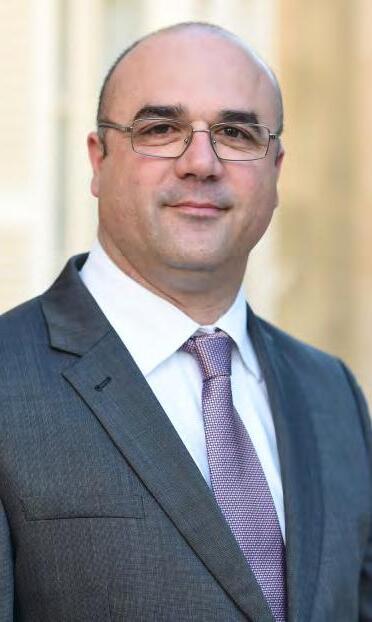
only a few of the factors fuelling this trend,” he said. “I am proud to say that despite our size, the value of property has historically and consistently been on the increase, without ever experiencing a dip.”
THE CITY of Rome is back at MIPIM at a “pivotal moment of opportunities and events” making the city ripe for investment, according to Rome’s Mayor, Roberto Gualtieri. “Rome is experiencing an extraordinary period of change and modernisation, that is not merely the sum of thousands of ongoing building sites, but a precise plan to stop talking about problems, and start solving them,” he said.
The Mayor added that Rome was “once again becoming a centre of attraction on a par with the world’s other great cities, thanks to a development strategy bringing together the main institutional, financial and industrial players”.
Gualtieri noted that the scale of the city’s redevelopment was
what made this phase of activity so exciting. “In Rome urban regeneration processes could affect 11 sq km of land by 2050, bringing more than 4 million sq m of
buildings back into use,” he said, estimating an added value of some €22bn to the city, “with a further €40bn in social and economic benefits for citizens”. On

top of this, he said that Rome was investing some €3bn in improving its public transport network, as well as a €300m spend to make Rome more inclusive, plus “interventions in digitalisation, the circular economy and 5G to make a more modern city”. He said: “The changes that we are making are not only radical, but fair, appealing to all neighbourhoods and citizens — with major investments from Piazza Pia to Tor Bella Monaca — to make the city grow together.”
Gualtieri concluded: “I want to send a clear message: Rome is at MIPIM in Cannes because it wants to tell the story of the impressive transformation project that is now under way.
“We are committed to ensuring that, over the next 10 years, Rome becomes a city that is more welcoming, more sustainable, more efficient and where it is easier and cheaper to invest. And we won’t stop!”
Rome Mayor Roberto Gualtieri
Magnum Estate, a leading developer in Bali, is building the cutting-edge Magnum Resort Sanur – the most extensive and promising project on the island in the ultra-luxury segment.
Nestled along the pristine shores of the Indian Ocean, Magnum Resort Sanur defines ultra-luxury living. Beyond its enchanting views and resort ambiance, residents of this exclusive complex enjoy access to 8,000 m² of premium facilities, five-star service, and hospitality that rivals the world’s finest hotels.
Magnum Resort Sanur offers 156 luxurious one- and two-bedroom apartments, starting from 101 m². With classic layouts, designer furniture, high-tech appliances, and premium-class plumbing, every detail is designed for a comfortable living experience.
Every unit comes equipped with a Smart Home system, allowing residents to effortlessly control all apartment amenities using voice commands or their smartphones. For those on the upper floors, there’s an exclusive perk – a private terrace jacuzzi with a panoramic view of the ocean.
Magnum Resort Sanur is not just a residential complex; it’s a true resort offering its residents:
• A scenic restaurant with a fusion menu.
• Moon rooftop lounge with ocean and Mount Agung views.
• State-of-the-art fitness center.
• Spa with a hammam and sauna.
• Yoga platform.
• Children’s play area.
• Co-working space with high-speed internet.
Additionally, residents and guests can enjoy a private beach, exclusive beach club, water motorcycles, and a yacht.
The complex is nestled in the heart of Sanur’s resort area, now Bali’s thriving hub for development. Here, the expansive Icon Bali shopping and entertainment complex is taking shape, along with the worldclass Bali International Hospital. Within walking distance, residents enjoy access to all essential conveniences, including a plethora of restaurants, cafes, shops, entertainment venues, childcare facilities, a golf course, and other vital amenities.
Adjacent to the complex lies the island’s longest waterfront promenade, spanning 5.5 kilometers – an ideal setting for leisurely strolls and moments of meditation. This unique spot in Bali boasts a wave-free sea, inviting for a refreshing dip, and 7 kilometers of picturesque beaches with pristine sands and a gentle water entry – a tempting invitation for residents and guests to indulge in swimming and sunbathing.
Beyond providing a comfortable lifestyle in Bali’s premier resort, Magnum Resort Sanur offers a compelling investment opportunity.
• Robust demand: The demand for elite real estate rentals in Sanur remains consistently high throughout the year, ensuring a steady passive income of 12% annually.
• Investment growth: Analysts project a substantial increase in square meter prices within the first five years post-complex completion. Investing now, starting at $5,000 per square meter, could yield over 50% profit upon apartment resale.
• Limited availability: The number of apartments in Magnum Resort Sanur is limited, making it nearly impossible to acquire real estate here after the complex is completed.

Magnum Resort Sanur stands out as a distinctive offering in Bali’s real estate market with significant profit potential. Its prime oceanfront location, premium facilities, unparalleled service, and robust investment returns position this complex as the new standard for luxurious living in Bali.
THE PRIME Minister of Thailand, Srettha Thavisin, is attending MIPIM for the first time to highlight Thailand’s potential as a “good place to live in and invest in”. Also the country’s Minister for Finance, Prime Minister Thavisin will be joined by working groups from a range of sectors, including the Thailand Convention and Exhibition Bureau (TCEB) in the Ministry of Foreign Affairs, as well as the public relations department (PRD), which has co-organised the exhibition Thailand Unveiled: Harmonising Liveability For Life – Why Thailand?. This explores Thailand’s excellent reputation for being a liveable country that is worth investing in, as part of the
project to promote Thailand’s image and publicise it internationally.
On its MIPIM debut, the PRD plans to present important strategic opportunities, such as
Bangkok, Chiang Mai, Phuket, Chonburi and Rayong, to attract investors from around the world through multimedia messages conveying the unique -
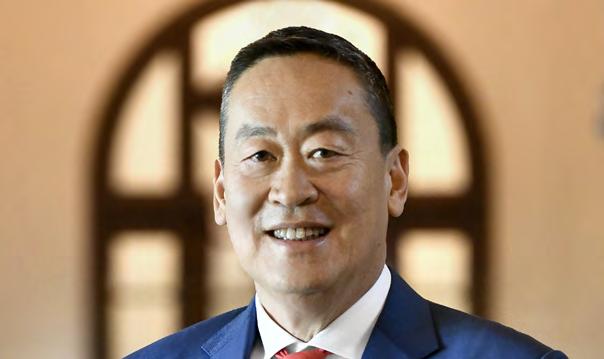
ness and elegance of Thailand. The department said it expected to further develop relations with government officials and executives from companies in countries including the UK, the United Arab Emirates, Germany and Saudi Arabia, among others, who would potentially be interested in visiting and investing in Thailand still further.
The Prime Minister is scheduled to attend MIPIM today, March 12, and will deliver a speech on the topic Better Infrastructure In An Age Of Risk, Scarcity And Emergency, on the Leaders’ Perspective Stage at 11.10.
While in France the Prime Minister is also scheduled to pay a courtesy visit and speak with Emmanuel Macron, President of the French Republic, as well as having bilateral talks with business leaders and executives of worldclass companies.





THE LONDON investment market is likely in a “buying year” as confidence returns and take-up rates continue to rise, a senior UK real estate expert has said.
Dominic Amey, principal and managing director of capital markets at Avison Young UK, has said that conversations with clients and prospective clients with an interest in London show that investors are approaching 2024 with a more positive approach than recent years, and that an increase in cross-border investment is likely to follow.
He said: “Early year conversations indicate that many investors see 2024 as a buying year. I’m active with several investors who have been waiting years to get into London and see this as the right time.”
“Private investors will be preva -

lent, investing directly or via investment managers.”
Amey’s comments reflect wider sentiments suggesting a return to confidence across the real estate investment market. This follows several years of reduced investment volumes since a string of economic shocks, starting with the COVID pandemic in 2020.
Amey said: “2023 saw below half the long-term average investment volume, and I expect this year to be more like 60% to 70% of long-term average volumes.”
But Amey warned that key underlying negative trends are likely to remain in 2024, including difficulties in obtaining debt to drive investment deals.
“Cash will remain king, as debt markets will still be tricky,” he said.
THE DEVELOPMENT agency responsible for the Brussels region, citydev.brussels, will share a broad slate of opportunities with real estate players at this year’s MIPIM. In a session on Wednesday, March 13, dubbed The Productive And Inclusive City – From Idea To Reality, the public body expects to discuss some of the topics of the moment, according to Benjamin Cadranel, CEO of citydev.brussels.
“The session will highlight the challenges encountered between the conceptualisation of a project and its realisation,” Cadranel said. “We decided to use two of our recently inaugurated projects as examples and to openly, critically and constructively discuss all the contingencies associated with their development with the archi-
tects of these projects and international experts.”
2024 marks an important milestone for citydev.brussels, as the agency celebrates its 50th birthday. Cadranel added: “This anniversary is an opportunity to celebrate the solid foundations of our institution, its expertise in complex projects, and the immense potential that this entails for our future projects.
“An anniversary is also a perfect occasion to look to the future. Of course, it’s risky to predict what the challenges of urban planning will be when citydev.brussels celebrates its one-hundredth birthday, but I’m convinced that we will have equipped our institution with the means, expertise and credit required to optimise our impact on
After a flat period in terms of sales and occupancy in 2022, Amey said that last year London experienced a “surge” in take-up for office space, a trend which he said is likely to continue this year.
He said: “Companies that had perhaps extended existing leases, or served lease breaks in favour of working from home, were keen to get back to the office — many seeking best-in-class space to attract their staff back in.
“I’m sure clients will seek clarity on whether this level of demand is likely to continue throughout 2024.”
This interest is likely to initially be most marked for “best-in-class” London office assets, chiefly The City and the West End, where Avison Young UK anticipates “strong rental growth” of between 5% and 10% in the next 12 months.
Avison Young UK is based in London but is active in numerous markets throughout the EMEA region, the US, Canada and Central America.
the Brussels Region’s development.” MIPIM will also see citydev.brussels flanked by the Brussels-Capital Region and colleagues from the public institutions responsible for territorial development at the Belgian Pavilion.
“This will be an opportunity to discuss the development of urban planning in the Belgian and European capital with national and international players.
“We will also be presenting our Business Review with the Société du Logement de la Région Bruxelloise and the Société d’Aménagement Urbain, which has become a recurring event for professionals in the sector keen to find out about and prepare for the public contracts that will be put out to tender in the months to come,” he said.
 citydev.brussels’ Benjamin Cadranel
citydev.brussels’ Benjamin Cadranel
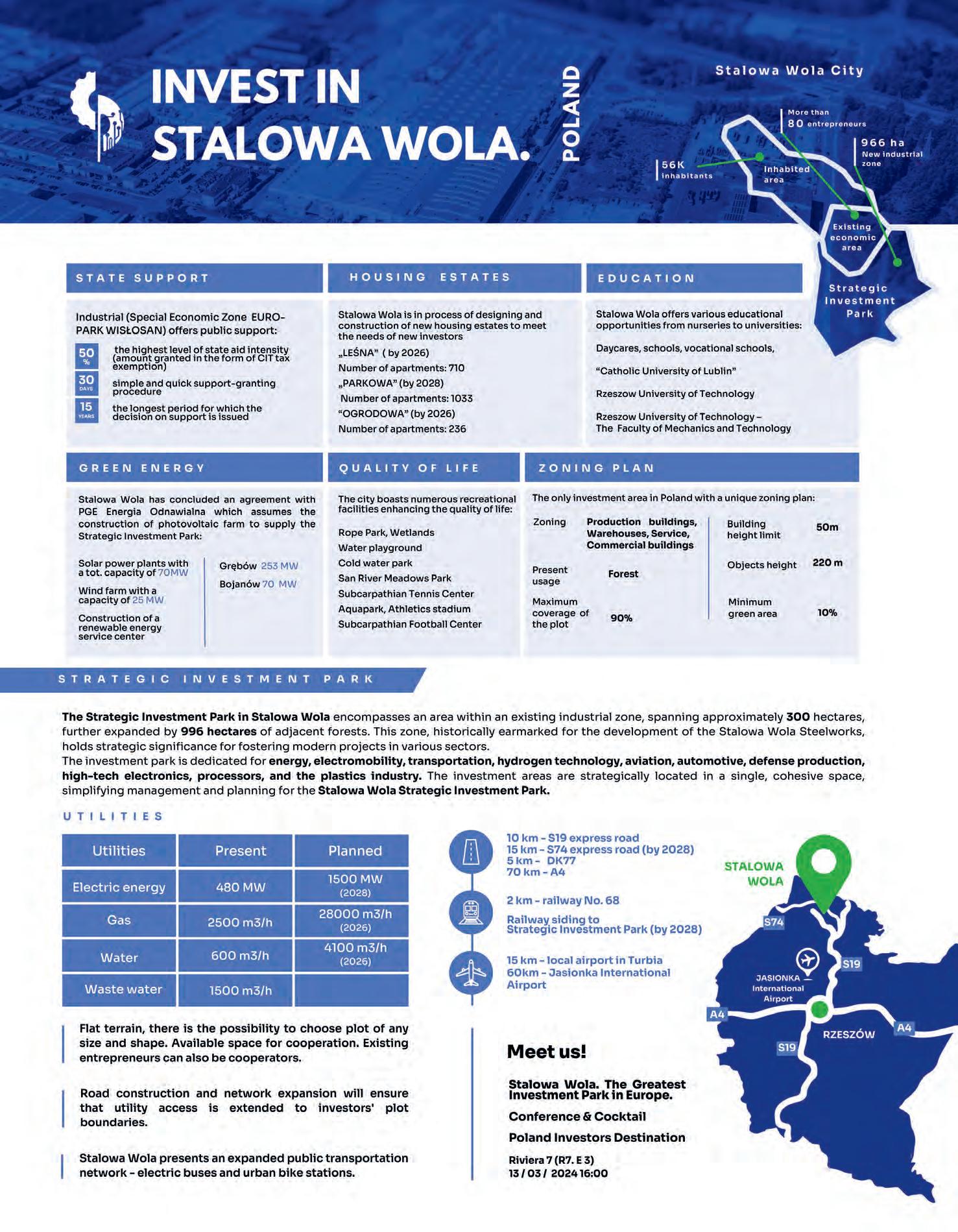
THE ANNUAL ritual of hundreds of delegates taking to two wheels and cycling to MIPIM was as popular as ever this year, with multiple teams arriving with smiles aplenty despite the miles in the saddle.
As in previous years, Club Peloton from the UK was a major presence. According to CEO Nick Hanmer, the club’s Cycle to MIPIM event is an opportunity for members to network while at the same time raising money for charity.
“We use cycling as a platform for events both on and off the bike that bring together a love for the sport and the opportunity to network while raising money to transform the lives of young people,” he said. “Cycle to MIPIM is our longest-running flagship ride, giving property-industry professionals the opportunity to complete either seven or four days on the bike together, building stronger and more meaningful working relationships as they cycle from London or Auxerre to Cannes. The friendly and interactive atmosphere builds camaraderie very quickly and forms the core of the Club Peloton ethos.”
Over the years, Club Peloton has raised huge amounts of money, Hanmer added. “Since our first outing in 2006, Club Peloton has made grants totalling £4.5m (€5.28m) to fund a variety of projects,” he said. “[That ranges] from recruiting families for 1,150 children waiting longer than 18 months to find adoptive homes to assisting 500 families with post-adoption support, awarding 800 bikes, tandems and adapted trikes to children and young people

affected by cancer and tackling the root causes of violent street crime through 18 amazing projects.”
Les Cycles de l’Immobilier association, which this year had almost 300 members taking part in the ride to Cannes, has similar motivations, according to its president, Sébastien Masson.
“The campaign aims to break the million-euro barrier in eight years, with a target of €250,000 in donations for this year,” he said. “The goal? To raise funds that will then be distributed to three associations: Architectes Solidaires, BlancheVLM and Imagine for Margo.”
He added: “This sporting challenge, in keeping with our experts’ passion for real estate, affirms the values that unite all of us: cohesion, solidarity, endurance and perseverance. Real estate professionals know how to invest themselves selflessly to help improve the daily lives of people in need.”
The finishing line also played host to the REcycle Club, which brings

together cyclists from Belgium and Luxembourg and raises funds for Cycle for Hope, a philanthropic organisation that supports children fighting cancer and their families. “This year the raised funds will go to the CHL Hospital in Luxembourg and Cliniques Universitaires: Institut du Roi Albert II in Brussels,” said club organiser Jean Leclercq. “Our efforts will contribute to providing specialised equipment for those children fighting cancer to ensure they receive the care they deserve.”
 Club Peloton takes a well-earned break (top)
Les Cycles de l’Immobilier association on the road (middle)
Club Peloton takes a well-earned break (top)
Les Cycles de l’Immobilier association on the road (middle)


INVESTMENT opportunities across Poland are being promoted at the first-ever Polish Pavilion at this year’s MIPIM. Decision-makers from both the public and private sectors will showcase projects such as Capital Park’s Nowy Welnowiec, a multi-generational, sustainable and mixed-use neighbourhood in the northern part of Katowice.
Visitors to the pavilion will also be greeted by representatives of the Polish Association of Developers, which has 325 members from across the country active in residential, office, hotel, logistics and other sectors.
Also attending the pavilion will be Roman Skowroński, managing director of Peakside, an independent investor, real estate manager and real estate fund manager that manages assets worth approximately €1.4bn on behalf of its institutional investors from its offices in Warsaw, Prague, Frankfurt, Zug and Luxembourg.
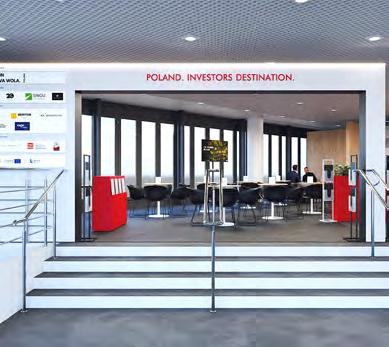
THE LUBELSKIE Region in Poland is at MIPIM to highlight its strategic location, situated in the heart of Central and Eastern Europe, for companies that wish to operate across both eastern and western markets, according to Eliza Mazur, manager, business-support office, department of economy, at the Lubelskie Marshal Office.
The area’s main city, Lublin, is an academic centre with nine institutes of higher education, a number of technology parks, plus business incubators to support innovation and new technologies. Last year’s European Youth Capital, Lublin
offers subsidies and tax benefits for investing in the city.
One of the other major components that makes the region, and Poland, attractive for investors is the introduction of Polish Investment Zones (PSIs), which were introduced in 2018 to support new direct investments carried out across Poland by extending tax relief, previously available only in special economic zones.
“Tax exemptions under the PSI programme vary throughout Poland in connection with the sustainable development policy, and in the Lubelskie area they are available at the
maximum level — up to 70% of the eligible costs of a new direct investment can be recovered as part of the tax refund,” Mazur said.
One such example of inward investment is Panattoni, which in February handed over Panattoni Park Lublin IV. The two-building complex has a combined area of 52,000 sq m, built within the Świdnik Economic Activity Zone. Tenants include Polish food exporter Mastermedia and box specialist MM Lublin.
Currently, Poland is particuarly focused on projects connected with automation, the circular economy and R&D projects.

THE POLISH city of Stalowa Wola is at MIPIM showcasing its Strategic Investment Park, which spans nearly 1,000 ha and offers investors the opportunity to acquire plots of land with full access to utlilities.
Key objectives for the city include finalising the construction of road infrastructure, plus the addition of a dedicated railway siding directly linking the Strategic Investment Park area to the broader railway network.
It is also carrying out environmental initiatives aimed at transitioning the majority of the zone’s energy consumption to sustainable, green-energy sources, while
integrating small modular reactors within the city.
“Planned initiatives encompass the expansion of recreational facilities, including state-of-the-art pool complexes and the establishment of a youth sports centre,” Jacek Śledziński, business centre manager, Stalowa Wola, said.
“Our focus also extends to providing support to developers for residential construction projects. Additionally, significant investments are earmarked for the enhancement of our public transportation network, which presently relies on electric vehicles for 90% of its operations.”
 The city of Stalowa Wola is showcasing its new Strategic Investment Park
Lublin is an academic centre with nine institutes of higher education
The first Polish Pavilion at MIPIM
The city of Stalowa Wola is showcasing its new Strategic Investment Park
Lublin is an academic centre with nine institutes of higher education
The first Polish Pavilion at MIPIM
Sanna Marin is the former Prime Minister of Finland (2019-2023). Recently nominated strategic counsellor to the Tony Blair Institute, Marin became the world’s youngest Prime Minister at 34 when elected in 2019.
Marin’s government is widely regarded as one of the most successful in managing the COVID-19 pandemic, particularly in terms of minimizing both the loss of lives and the economic impact resulting from the outbreak.
Marin specialises in the topics of geopolitics, strategic autonomy, climate change, and female leadership.
Tuesday 12 March at 15:10, Grand Auditorium

TURKISH consultancy Alkaş is attending MIPIM this year, in part, to drum up the investment required to rebuild communities, according to the company’s chairman Avi Alkaş.
“We will be joining forces with a group of real estate investors, service providers and various semi-governmental institutions,” he said. “With Turkey grappling with the aftermath of a devastating earthquake in February 2023, the urgency for investment is heightened.
“There is a need for housing projects to rehabilitate the regions affected by the earthquake in 11 provinces of Turkey, where more than 13.5 million inhabitants [were impacted]. We remain steadfast in showcasing Turkey’s resilience and investment opportunities. In the aftermath of recent
seismic events, 2024 marks the beginning of transformative initiatives for earthquake recovery and pre-emptive urban planning.”
Alkaş is also keen to highlight other opportunities in his country, not least in terms of urban regeneration and tourism. “Turkish participants are keen on exploring new developments and forging connections with leading global entities from the European and global markets,” he said. “We aim to underline that urban regeneration projects in major cities like Istanbul offer attractive opportunities for investors. Simultaneously, Turkey’s flourishing tourism industry and urban regeneration endeavours signify a growing demand for revitalising existing real estate assets.”
He added: “Turkey’s growing population, fuelled by immigration
and refugee influxes, necessitates comprehensive housing and urban development strategies. With MIPIM serving as a vital platform for Turkish investors to attract international attention and foster growth, Alkaş anticipates accelerated development and increased business opportunities in the coming year.
“Looking ahead we envision a pivotal year for Turkey amid political and economic transitions. Despite economic challenges stemming from frequent elections and currency devaluation, the real estate industry continues to innovate with long-term sales solutions.”
In addition, Alkaş said that Turkey has a leading role to play in helping other countries to rebuild.
“With Turkish construction companies ranking second globally in
investment that incorporates operational elements, will be the focus at this year’s MIPIM, according to Cristina Garcia-Peri, senior partner and head of corporate development and strategy at Madrid-based Azora.
She said that this represents a year of strategic opportunities, with a shift towards more actively managed sectors of real estate. “We will explore the potential that these sectors hold for investors looking to diversify their portfolios with real estate investments that offer more than just capital appreciation but also derive income from operational success,” she said.
“These include the hospitality sector, rented residential properties that cater to the growing demand
 Azora’s Cristina Garcia-Peri
Azora’s Cristina Garcia-Peri
for flexible living options, senior living facilities that are becoming increasingly important due to demographic shifts, and data centres, which are critical in today’s digital economy.”
This year Azora, a real estate investment manager with assets under management (AUM) of €9.7bn, anticipates a continuation of repricing and distress in some specific real estate sectors, driven by market dynamics, but this should also unveil “substantial opportunities for entities equipped with robust equity positions and the backing of supportive investors”, she said.
Azora is looking to capitalise on the acquisition of assets and platforms that have experienced significant challenges, while the company believes that the living
growth and capabilities, Turkey is poised to emerge as a significant player in the international real estate arena,” he said. “Moreover, amidst global conflicts creating displaced populations and the need for new cities, Turkey stands ready to contribute to regional development alongside international investors.”
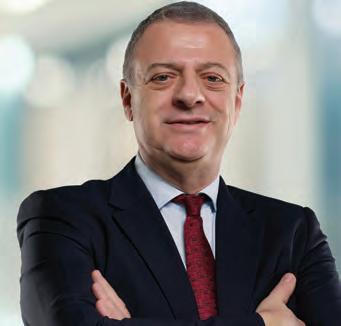
space is poised to receive a substantial boost from factors such as an ageing population, coupled with a persistent shortage of suitable housing options.
“This demographic and market reality is forecast to drive heightened institutional interest towards the rented residential and senior living sectors, with Spain positioned as a focal point for such investments. Furthermore, the hospitality sector is anticipated to continue its post-pandemic recovery trajectory, marked by positive growth indicators, including strong average daily rates and occupancy figures,” she said. “This rebound signifies a return to form for the hospitality industry, highlighting its resilience and the rekindled demand for travel and leisure experiences. Collectively, these trends underscore a year of strategic opportunities and sector growth within the real estate market, reflecting a blend of challenges and prospects for investors and operators alike.”




In honor of International Women’s Day and the incredible women in the industry, Kroll are hosting a Women’s Social event with Howden.
Join us for networking over light refreshments. You will also have the chance to learn padel with coaches from the Padel Social Club.
Tuesday, March 12, 2024
4:00 p.m. – 6:00 p.m.
Howden Beach Club. Located on the beach space in front of 22 Boulevard de la Croisette.
The event is free to attend but RSVP is required.
Meet us at MIPIM







Kroll experts from Italy, Germany, Spain and the UK will be onsite throughout the event at stand P-1.J.15 and at the Howden Beach Club.

PGIM Real Estate has acquired two prime logistics buildings in southern Milan, Italy, and finalised two major leases for logistics properties in Berlin, Germany, on behalf of its European core strategy. The Italian sheds, totalling 41,500 sq m, are located in Borgo San Giovanni.
Christine Fritz, co-portfolio manager of the European core strategy, said: “Our logistics platform has seen significant rental growth as a result of our disciplined approach to acquisitions and active asset management capabilities enabling us to activate rental value and deliver continuous income growth.
“More broadly, global investor sentiment continues to show that logistics remains highly favoured in Europe — we see a strong structural growth story in the sector for Italy, Germany and other European prime markets, with rents rising on the back of elevated e-commerce adoption and supply-chain restructuring.”

ITALIAN investor, developer and asset manager Coima has secured €50m from Italy’s sovereign wealth fund, CDP Real Asset, for the transformation of the 2026 Winter Olympic Village into Italy’s largest purpose-built student accommodation development.
The investment has been made through the National Fund for Sustainable Housing (FNAS).
FNAS is a closed-end alternative investment fund managed by CDP Real Assets, which aims to promote real estate projects of up to €1bn that have a strong focus on sustainability and social impact.
The investment sees CDP Real Asset join Coima’s ESG City Impact Fund (Coima Impact), Italy’s largest urban regeneration fund, which has now raised over €900m from leading Italian institutional investors. The fund has increased its target size from to €1bn to €2bn, with Coima now embarking on a fresh round of fundraising activity. To deploy the €50m investment in the 1,700-bed student accommodation scheme at Porta Romana, Coima will establish a new fund, backed by FNAS and the Coima Housing Fund, a closed-end real estate fund dedicated to sustain-
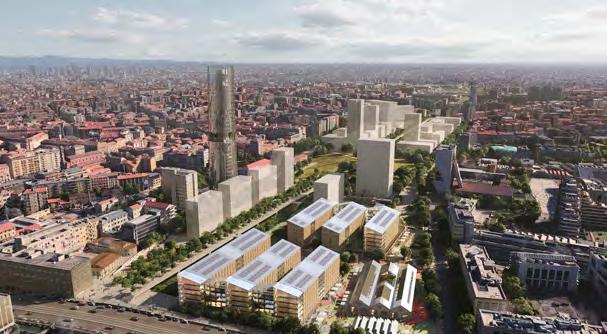
able living that was launched by Coima in March 2023.
Coima Housing, which focuses on the development of a range of social and subsidised housing, as well as the development and operation of student schemes, is backed by Coima Impact and Intesa Sanpaolo.
The €50m investment will see the ultra-sustainable 2026 Winter Olympic Village at Porta Romana transformed into high quality student accommodation after the Games, helping address a major shortage of student beds in Milan. Manfredi Catella, founder and CEO of Coima, said: “We are honoured that Italy’s sovereign wealth fund has joined Coima’s ESG City Impact Fund as co-investor in the transformation of the 2026 Winter Olympic Village into Italy’s largest student accommodation development. The Coima ESG City Impact Fund has now raised over €900m from primary institutional investors, underlining the value investors continue to place on sustainable urban regeneration that generates strong positive social and economic impacts.”
THE ITALIAN region of Emilia-Romagna is presenting a united front at MIPIM, according to Councillor Vincenzo Colla, as the Metropolitan City of Bologna, the Municipalities of Piacenza, Ravenna and Reggio Emilia and Forli Airport join together to attract investment, innovation and talent. Flagship projects on show will include Bologna’s Tecnopolo Manifattura – Data Valley Hub, which hosts the ECMWF supercomputer and Leonardo, two strategic investments in the big data and AI sector. “We’ll be talking to investors at MIPIM about a 15,000 sq m tower which will be built here, to host international research centres, labo -
ratories and accelerators,” Colla said. “Emilia-Romagna also offers opportunities for urban regeneration around the Tecnopolo and university campuses throughout the region, as well as manufacturing and hospitality projects.” Another topic of debate will be the Port of Ravenna, which is considered an important gateway to the Mediterranean, as well as an emerging hub for the production and distribution of energy, with a focus on renewables.
“Two of Europe’s most important carbon-capture projects are taking shape here, and one of the largest floating photovoltaic and offshore wind farms in Italy will be built nearby,” he said. “In addition, the
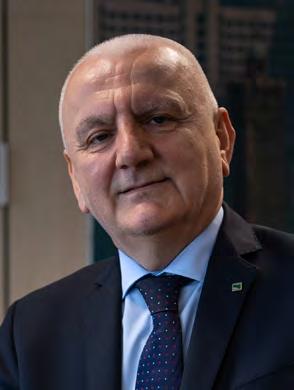
natural gas storage facility, while in Modena, Hydrogen Valley will be the next exciting project.”
region hosts the largest European Vincenzo Colla, Councillor, Emilia-Romagna The 2026 Winter Olympic Village is set for a post-event transformation PGIM Real Estate’s Christine FritzScotland
Belfast
Dublin
Ireland
Wales
England
London Brussels

JAPAN’s Sumitomo Forestry Co (SFC) is currently building a six-story office building in south London, made of timber, in a joint venture with British real estate developer Bywater Properties. It is SFC’s first construction project in the UK, and indeed in Europe, though the company has been active on the continent for several decades through its former representative office in Amsterdam.
By chiefly using wood as the building material, the ‘upfront carbon’ of the building will be reduced by 60% compared to conventional reinforced concrete and steel construction.
“One of our goals as a forestry management and timber supply company is to achieve a decarbonised society,” said On Nakagawa, presi-

dent of Sumitomo Forestry Europe. “We partnered with Bywater after we realised we shared a vision about decarbonisation.”
According to Nakagawa, wood has become a more popular building material, even for high rise construction, due to the fact that trees capture carbon, rather than emit it. Since carbon is one of the main causes of global warming, carbon-neutral construction is essential for addressing climate change and promoting sustainability.
“SFC promotes the value of wood,” he added. “We started more than 300 years ago as part of the Sumitomo family copper-mine business, which needed timber for reinforcing tunnels and refining copper as fuel. The group cultivated forests.
“Now we own forests, manage them, harvest trees and replant them, using the wood we produce for construction and furniture. We also now have some biomass power plants. When it comes to wood, we operate at any point in the supply chain, which we call the Wood Cycle.” The London office building is only the start. SFC hopes to help build residential buildings and industrial facilities using wood.
“There are some challenges, of course,” Nakagawa said. “For this project we had to do extra fire testing to convince local authorities and the market. We are also working with material suppliers and sustainability consultants.”
He emphasised that, in line with sustainability practices, as much wood as possible is obtained locally, if possible through other forest management companies, because reducing carbon also means reducing transportation and processing of constituent materials.
SFC also plans to work with wood in the renovation of existing buildings. “There are a lot of old buildings in London,” Nakagawa said. “In terms of decarbonisation, it is better to preserve buildings. When you demolish and rebuild, you emit a lot of carbon. We look at renovation as a real estate concern — adding value by using lighter wooden materials and maybe more storeys to existing structures. Since last year we’ve acquired some buildings that we plan to refurbish and expand.”
At MIPIM, Nakagawa hopes to meet other businesses and individuals who are interested in wooden buildings. “We’ve already set up some meetings with investors and other partners,” he said.
In addition to London, Nakagawa thinks that France and the Netherlands, which have shown interest in wooden construction, could provide good information and potential partners going forward.
And when asked what sort of tenants he thinks will be moving into the London office building when it’s finished, Nakagawa said: “Ideally, they would be companies that understand what we’re doing. But we have to be profitable if we want to run a truly sustainable business.”
THE HOTEL sector has bounced back following the COVID-19 pandemic and is now proving resilient in the face of substantial increases in interest rates, according to Felicity Black-Roberts, vice president, acquisitions and development, Europe, at Hyatt.
“There is a lot going on in the hotel sector currently, with demand, — particularly for leisure destinations — remaining very strong,” she said. “Post-pandemic there
has been no shortage of investors in the sector but the frustration remains the lack of supply for investors and the pricing levels.”
She added: “What we have seen post-pandemic is more, not less, investors in the hotel sector — especially in the urban and non-urban leisure segment. We will certainly continue to see investors ensuring that every element of the business is maximised, with increasing ingenuity and imagi -

nation applied to reinventing ancillary functions such as meeting space and F&B, and reacting to changing working patterns.”
Black-Roberts said that the pandemic highlighted just how strong people’s desire to travel and visit new places remains.
“Consumers appear to be prioritising travel over other expenditure and I do not see this trend reversing,” she said. “In my view we will see a lot of new destinations finding prominence with travellers and this is an exciting opportunity for a brand like Hyatt to work with investors in these emerging destinations.”
In particular, Black-Roberts said that travellers are increasingly attracted to all-inclusive resorts.
“There is a lot of interest in resorts and the rise of the all-inclusive segment,” she said. “With Hyatt’s dominance in this segment, we are looking to expand our brands outside of the Spanish Mediterranean and explore new markets for these increasingly in-demand hotels.”
THE GLOBAL real estate investor, developer and property manager Hines has acquired a new 260-bed student development at Gas Lane in Bristol on behalf of the Hines European Property Partners Fund (HEPP). The purpose-built student accommodation (PBSA) is next to the University of Bristol’s new Temple Quarter Enterprise Campus and is expected to be completed in time for the start of the 2025/26 academic year.
“The number of students going into education has grown exponentially and the undersupply of purpose-built student housing in the UK is well documented,” Jorge Duarte, senior managing director and fund manager of HEPP said. “Schemes like this one provide the opportunity to play our part in building the PBSA that the UK desperately needs, while seeking to deliver real value to our investors.”
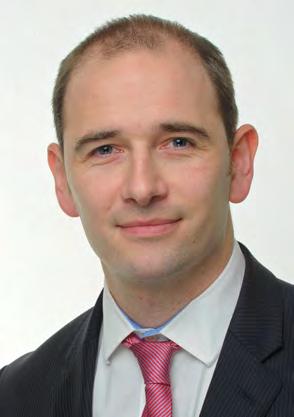
AFTER a tumultuous and unpredictable period, developers in the UK can look forward to greater stability, according to Thomas Vandecasteele, managing director at Legendre UK.
“The last few years have been challenging with Brexit, COVID, inflation and the mini-budget,” he said, referring to the fiscal event in the autumn of 2022 that led to market turmoil within days.
“[But] even with the impending general election, we are very much hoping for stability and certainty, which will give the confidence to developers and investors to carry
on with their projects. From what we see at the moment, it appears to be the case.”
In particular, Vandecasteele sees multiple opportunities opening up in the repurposing of older office buildings.
“Generally, we expect to see high levels of activity in terms of refurbishing offices to upgrade the assets to the latest environmental standard,” he said.
“Likewise, we forecast that the repositioning of offices into new forms of residential product — such as co-living — will become more and more popular.”
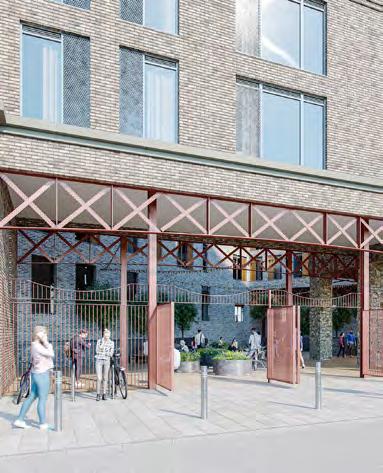

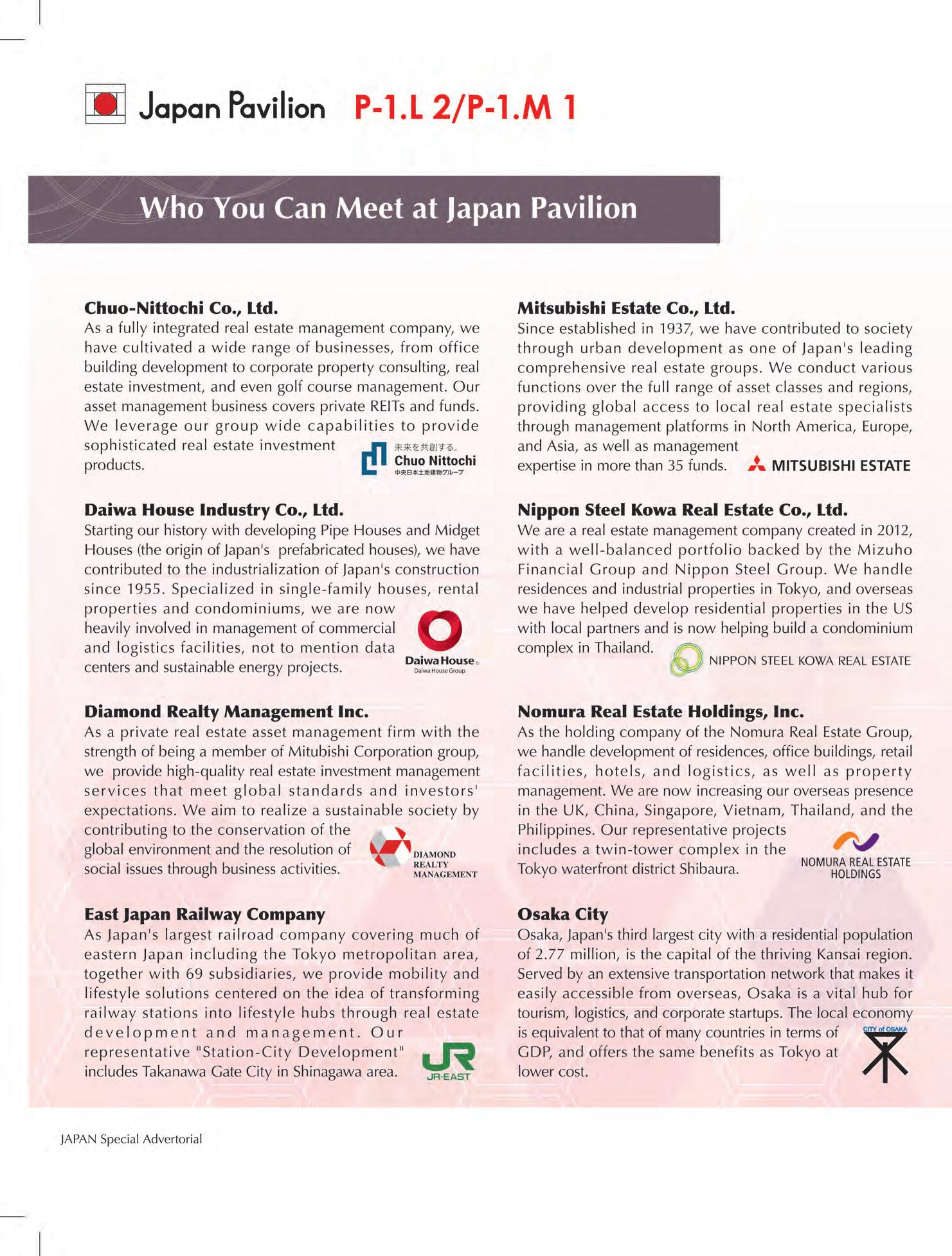









THE NEW West End Company represents 600 retail, restaurant, hotel and property owners across London’s West End and its chief executive, Dee Corsi, is at MIPIM with a busy schedule.
“The MIPIM agenda is always absolutely packed,” she said, “and I have found that some of the most interesting conversations are those that emerge unexpectedly over a cup of coffee.” Corsi is looking forward to sharing the findings of the company’s Oxford Street 2030 Report which will be launching in Cannes.
“It is an exploration of what it means to be a flagship retail and leisure destination, both now and in the future, and is packed full of insights from stakeholders in the street — from international retailers to occupiers and futurists,” she said.

THE GREATER London Authority (GLA) has launched the search for a new development partner to transform Royal Albert Dock in London. Extending to 12 ha with potential for 400,000 sq m of new development, the site sits within the capital’s only enterprise zone.
Royal Albert Dock is located within the wider Royal Docks area and is one of seven significant development sites being brought forward across 175 ha of public land belonging to the GLA. Approximately £5bn (€5.87m) of investment is planned for the area
over the next 20 years, providing 36,000 new homes and creating 55,000 new jobs.
City Hall relocated to the Royal Docks in 2022 and the site itself is located on the north side of the Royal Albert Dock.
Procurement of a new development partner is being led by the Royal Docks Team (a joint initiative from the Mayor of London and the Mayor of Newham) on behalf of GLA Land and Property (GLAP) as freeholder. Following the selection process, the GLA and its partner will work with the
London Borough of Newham on a shared vision and delivery strategy. Planning and development consultancy Montagu Evans is advising the Royal Docks Team and formal procurement is expected to start in summer 2024.
“As well as new homes people can afford, we’ll be opening up a vast array of jobs and opportunities reflecting the way we now need to live and work to secure a sustainable, inclusive and fairer Newham for present and future generations,” said Rokhsana Fiaz, Mayor of Newham.

LONDON is now the most attractive market for office investors in Europe following a difficult period for the market, according to James Carrington, head of city investment at BNP Paribas Real Estate.
“The London market has essentially reached the bottom and is probably the most attractive major city for investment in Europe right now, which means capital is coming back,” he said.
“Rental growth is a key driver with continued upwards pressure in the likes of Mayfair and the City, which saw prime rents reach £150 per sq ft
(€176) and £75 per sq ft respectively in Q4 2023. Those are attractive numbers and are forecast to grow further over the next 24 months.”
Carrington added that the lack of new, Grade A stock means that there are also opportunities for proactive investors to profit from repurposing older assets. “Investors should take note that occupiers are starting to consider alternative options,” he said.
“Those who can take on a refurbishment risk or have good local knowledge of supply and demand dynamics, could emerge as the winners of the next few years.”
 BNP Paribas Real Estate’s James Carrington
Royal Albert Dock: partner wanted
New West End Company’s Dee Corsi
BNP Paribas Real Estate’s James Carrington
Royal Albert Dock: partner wanted
New West End Company’s Dee Corsi
13 March 2024 - 11.00 // Verrière Californie 5th floor (french session)
Our Speakers:


Hélène Peskine Permanent secretary Plan Urbanisme Construction Architecture


Mark Brearley Professor London Metropolitan University



Oana Bogdan Architect / Founder &bogdan Luk Peeters Managing Partner ORG Permanent Modernity


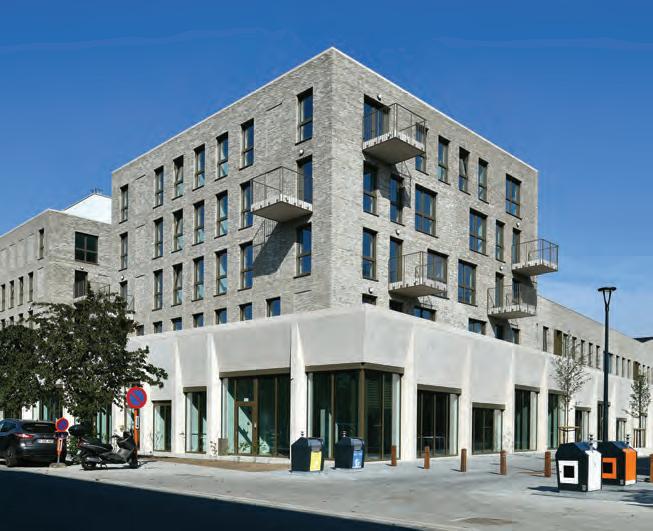




Benjamin Cadranel CEO citydev.brussels


Nathalie Renneboog General Director - Urban Renewal citydev.brussels


Philippe Antoine General Director - Economic Expansion citydev.brussels


DANIEL May, director at mixed-use developer Socius, will be wearing “at least two hats” at this year’s MIPIM. “One for Socius, where our focus is on looking at opportunities to deliver people-focused places in urban locations that draw upon our expertise across a broad spectrum of uses,” he said. “The second is as an ambassador for the London Cancer Hub in Sutton, where we will be delivering the world’s leading cancer research district alongside Aviva Capital Partners.”
May predicts that the second half of the year could become very active as private equity seeks out thematic opportunities.
“Our cross-sector experience will become very desirable for those investors with stranded assets, too,” he said. “I feel like we’ve passed peak pessimism and are moving into a world of cautious optimism.”

IN THE wake of the COVID-19 pandemic and the subsequent changes to working patterns seen in most parts of the world, property companies can no longer rely on offices as the bedrock of the industry, according to Robin Rivaton, CEO of technology firm Stonal.
“The office will no longer be the mammoth that it once was,” he said. “We can no longer rely on the office sector to be the foremost contributing factor to the commercial real estate industry.
MIPIM will likely be centred around discussing what’s next for the industry in terms of diversifying uses of portfolios.”
Rivaton added that property companies will need to become more interventionist when it comes to operational management.
“Operational management of assets is also becoming a notable requirement,” Rivaton said. “Today, asset managers are at a crossroads. They have access to

more data and information than ever before, meaning they must decide to stop working in inefficient data silos, instead, focusing on the operational management of assets and employing technological solutions to support this. “There is an increasing need for actionable insights and information about your portfolio,” he added. “Most importantly, having the right information on assets to determine the right level of CapEx will no longer be a nice-to-have, but a necessity.”
The industry, Rivaton said, is at an inflection point but embracing new technology should allow it to become more efficient.
“Technology is enabling people to manage more [assets] without requiring an increase in headcount to handle this,” he said. “Asset managers can utilise technology to increase capacity while seeing little need to increase costs.”
NUNO Brito e Cunha, lead ESG advisor EMEA, at Measurabl, an ESG platform for real estate, is in Cannes this week to discuss sustainability trends, regulatory changes and technological innovations. In a landscape undergoing significant repricing, market fundamentals remain steady but the focus is shifting, according to Brito e Cunha.
“The industry is recognising the financial and environmental risks of unchecked carbon emissions,” he told MIPIM News.
“Implementing an internal carbon price is emerging as a strategic measure to direct capital expenditure towards mitigating these risks, emphasising the fi -
nancial imperatives of sustainability efforts,” he added.
“Far from being just an ethical consideration, sustainability is becoming a strategic business move,” he said.
“The potential for sustainability to drive revenue, reduce costs and mitigate risks is real and actionable. This shift reflects a broader understanding of the economic benefits of sustainable practices,” he added.
The sector is in a transformative period, according to Brito e Cunha, where sustainability becomes integral to operational, financial and strategic decision-making, setting the stage for a more sustainable and financially resilient industry.
 Measurabl’s Nuno Brito e Cunha
Stonal’s Robin Rivaton
Measurabl’s Nuno Brito e Cunha
Stonal’s Robin Rivaton


ASSET manager Commerz Real has acquired a mixed-use development that includes office, retail and other uses at Maximilianstrasse 12-14 and Falkenturmstrasse 5-7 in central Munich from developer Centrum on behalf of a private investor for an undisclosed sum.
“The current environment and the swift action taken by all the participants mean we have been able to acquire a rare gem on Munich’s property market for our client,” said Kerstin Struckmann, global head of product management, institutional clients, at Commerz Real.
The ground floor and the first floor of the building on Maximilianstrasse houses brands including Louis Vuitton, Montblanc and Swatch. Offices are located on the remaining floors. The building on Falkenturmstrasse, meanwhile, includes a hotel and two residential units. The development is located close to Marienplatz, Munich’s main square, as well as the Bavarian State Opera.
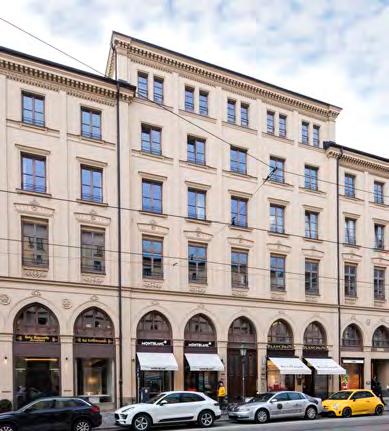
Maximilianstrasse 12-14, central Munich
HIGHER yields thanks to rent growth and valuation decline, reduced development activity, higher input costs and ESG requirements will underpin the value of

high-quality existing assets according to John O’Driscoll, global cohead of real estate, AXA IM Alts. In particular, he foresees positive tailwinds for logistics, which the company believes will continue to perform strongly despite having seen some of the highest rental growth of any European real estate sector.
“We also expect continued performance in operational real estate sectors, including life sciences and film studios, each of which has experienced marked rental growth in recent years driven by a supply/demand imbalance,” he said. “However, despite the potential to make a case for investment there are also some areas to be mindful of, including the interest rate trajectory, selling activity from those who haven’t been able to execute in 2023 and the potential for some restructuring.” From a capital markets perspec -
tive, questions around access to debt are likely to dominate conversations at MIPIM, he believes, presenting opportunities for alternative lenders looking to back best-in-class sponsors with high-quality assets at rebased valuation and an attractive loan-tovalue and debt yield, offering an attractive rate of return.
“There are some questions in the market as to how long these rates of return will prevail, but there is little debate around the role and potential for growth of non-bank lenders, which has increased consistently since the previous financial crisis,” he added.
Decarbonisation and digitalisation are also likely to be key themes this year, presenting significant value-add opportunities for those with the right strategies and investments in place to support the green-energy transition, O’Driscoll said.
LONDON-based FRISIA Real Estate has built a pipeline of over £40m (€47m) of UK development projects including a £20m residential scheme in Hayes, to the west of London, a £15m aparthotel in Birmingham and a £6m student-accommodation project in Lancaster.
In Lancaster, FRISIA has now received planning permission and work has started for the Pump House site, St George’s Quay, to provide 35 purpose-built student en-suite studios behind the original pump house façade.
The site was acquired from Landsec U+I and is being developed to BREEAM Excellent standards.
The transaction is fully funded with equity from an international high-net-worth individual and
debt from a UK development finance lender, FRISIA said.
“We see huge opportunities in the UK living market, including build-to-rent, private rented, build-to-sell, purpose-built student accommodation, senior liv-
ing and aparthotels — especially in the £5m to £25m bracket — and we are at MIPIM to seek out more development opportunities,” FRISIA development director Nick Langford added of the company’s strategy.
 FRISIA Real Estate founder Adenekan Adeniran (left) and development director Nick Langford
AXA IM Alts’ John O’Driscoll
FRISIA Real Estate founder Adenekan Adeniran (left) and development director Nick Langford
AXA IM Alts’ John O’Driscoll

Selbst nach der Transformation der Branche wird ESG ein beherrschendes Thema bleiben. Egal ob für Bestandshalter, Banker, Immobilienentwickler oder Dienstleister – ohne Nachhaltigkeit im E, S und G-Sinne, wird Geschäft kaum noch möglich sein.
Die Themen im Überblick:
• Welche ESG-Maßnahmen bei der Transformation helfen?
• Warum es jetzt wichtig ist, auch in das „S“ zu investieren?
• Wie ESG die zukünftigen Bilanzen verändern wird?
Mehr Infos unter www.immobilienmanager.de/imfokus
Partner:


GERMANY’s Deka Immobilien has acquired an office in the historic centre of Rome on Via Veneto from investment house Ardian. “The fantastic location and quality of the property are unique selling points on the Roman market. It’s the first building in Rome to receive triple certification,” said Victor Stoltenburg, managing director of Deka Immobilien.
The office building, Veneto 89, was built in 1928 and has recently been fully renovated. It is occupied by two tenants, of which Deloitte Italy is the main one.
The building has achieved a first in Rome, winning the Leadership in Energy and Environmental Design (LEED) Gold standard, a Very Good rating by BREEAM, and the WELL Silver standard, which places strong emphasis on the health and comfort of a building’s users.

THE LOMBARDY region’s “diverse opportunities” will be on show at MIPIM once again, according to regional councillor, Guido Guidesi, who has invited international investors to visit the Lombardy stand to get to know this part of Italy better.
“This year we have identified 23 projects, ranging from hospitality/tourism to education/ training, from student to senior housing, from residential to ser-
vices,” Guidesi said. “The range of projects represents almost all the provinces of Lombardy, in greatly varying contexts, from mountains to lakes, from historic centres to rural plains.” Guidesi said that the region had been able to bring together this rich tapestry of opportunities, thanks to the support and co-ordination of its varied towns and boroughs. He added: “As a region, we have a duty to back the
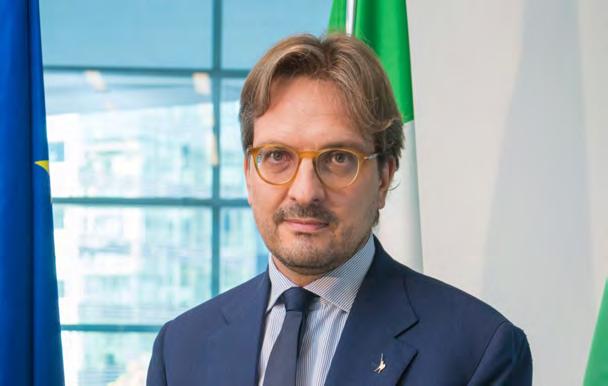
realisation of these projects and to facilitate connections with international operators. Once enquiries have been gathered, we are ready to work together to turn that potential interest into real investment.” Guidesi said that Lombardy had become one of Europe’s most attractive regions, thanks to an “ecosystem ranging from education to research, through supplies, services, and production; this is the added value that Lombardy offers to those who want to invest.” He also noted that many of the most exciting projects across the region were connected to its vibrant past, namely “ideas linked to the industrial and productive history of Lombardy’s various boroughs”. He said that the region also wanted to make known its wider territory, beyond Milan, while boosting the connection between the region and its capital with its Milan & Lombardy initiative, launched jointly with the Municipality of Milan.
EXTENSIVE plans for infrastructure investment are set to revamp the coastline around Geona and help regenerate many of the western parts of the city, according to Mayor Marco Bucci. “Our port will once again become a central hub in the Mediterranean, thanks to our new dam,” he said.
The breakwater dam under construction — set to be the deepest in Europe — will allow larger ships to enter the facility.
Bucci said that there were also plans to improve rail connections with Milan and improve its motorways. “This will enable our city
to attract more inhabitants, tourists, and investors from all over the world,” Bucci said.
The city is also about to launch its new public park — the Parco dei Forti — “where people can visit the ancient walls and fortifications of the city: it’s the longest city wall in Europe and the second in the world after the Great Wall of China!”
Bucci said that the plans were being executed with an eye on sustainability, “including interventions for climate change mitigation and adaptation across services and infrastructure”.
 Mayor Marco Bucci, city of Genoa
Guido Guidesi, Lombardy region
Mayor Marco Bucci, city of Genoa
Guido Guidesi, Lombardy region

DEMANDEZ UNE DÉMO


Visualisez et explorez les données de marché en temps réel* avec un niveau de détail inégalé (chaque transaction est détaillée)
*Source CFNEWS DATA, données compilées et structurées par nos analystes, vérifiées par nos journalistes experts du Real Estate
Filtrage des données par stratégie, régions, typologie d’actifs, investisseur, valorisation métrique...
Suivi jour après jour des grandes tendances de l’investissement immobilier
Cartographie complète des transactions en France avec géolocalisation
Graphiques et transactions exportables & exploitables immédiatement (Excel, PDF, PNG, JPEG)
AFTER a turbulent 2023, concern that commercial real estate will face additional challenges in 2024 is being tempered by emerging opportunities, according to Seema Shah, chief global strategist at Principal Asset Management. “While the office sector may remain vulnerable, other sectors remain well-funded and will be supported by a constructive economic backdrop, setting the stage for a transformative year in commercial real estate,” Shah said.
Turning to refinancing matters, she added: “While the maturity wall is undoubtedly significant, the overall refinancing risk to the commercial real estate market should be relatively well contained for several reasons.” Such reasons include policymakers wanting to shield the economy from stress, the resilient US economy, and the stronger fundamentals of assets such as residential, which represent some 30% of the outstanding debt, she noted.

RESEARCH from asset manager
AEW suggests that Europe is the region most challenged by the imminent wall of refinancings in real estate.
The firm’s first global Debt Funding Gap (DFG) analysis provides insights on the relative refinancing challenges faced by Europe, the US and Asia Pacific. According to the research, Europe leads with the largest DFG on a relative basis, standing at 16% of loan originations, closely followed by the US at 14%, with Asia Pacific remaining relatively immune.
Office loans consistently emerge as the primary concern across all three regions, followed by multi-family and retail sectors, which have experienced significant capital value declines during the recent economic cycle.
In Europe, Germany and the Nordics exhibit the highest DFGs at over 22% and 18%, respectively,
while the UK and Southern Europe are best placed at 9% and 11%.
Hans Vrensen, head of AEW research & strategy said: “This is the first time we’ve expanded our DFG analysis to show the extent of the refinancing challenge globally.
“Europe has the widest gap, closely followed by the US, with Asia relatively immune. Unsurprisingly the office sector shows the widest gap,” he added.
Despite the US seeing similar value declines to Europe, detailed loan maturity data for 2024-26 contributes to a declining DFG in 2025 and 2026, compared to 2024. There is a more diverse landscape in the APAC region, with major markets such as Australia, Singapore, South Korea and Japan, as well as Tier 1 cities in China, all facing a DFG of 7.6%, lower than that for both the US and Europe.
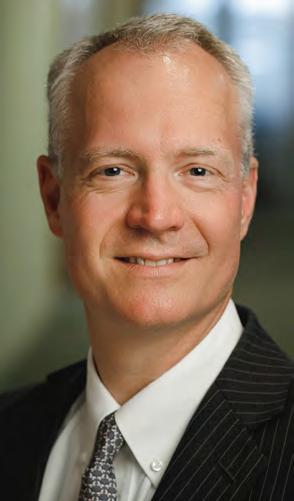
AAREAL Bank has financed the majority of a hotel portfolio deal in London acquired by a controlled affiliate of Starwood Capital Group.
The portfolio comprises a collection of 10 hotels with 2,053 rooms, all located in London and operated under the Radisson Blu brand.
The bank provided a loan for eight assets within the portfolio while acting as the arranger, facility agent and security agent.
The acquisition adds to Starwood Capital’s existing portfolio of European hotel investments, which following the transaction will comprise 47 hotels with around 10,000 rooms across Europe.
Bettina Graef-Parker, managing director, special property Finance at Aareal Bank, said: “We are honoured to support Starwood Capital in this significant acquisition, leveraging our expertise in the hospitality sector and providing financial solutions to realise their strategic vision.” Tim Abram, managing director at Starwood Capital said: “We are delighted to have Aareal Bank as our partner on the acquisition of this one-of-a-kind portfolio of London hotels. The transaction continues our long-standing relationship with Aareal Bank, whose team has a deep and impressive knowledge of the hotel industry.”
 Aareal Bank’s Bettina Graef-Parker
AEW’s Hans Vrensen
Principal Asset Management ‘s Seema Shah
Aareal Bank’s Bettina Graef-Parker
AEW’s Hans Vrensen
Principal Asset Management ‘s Seema Shah








THE RESULTS of a survey on the adoption of artificial intelligence (AI) within the real estate sector have revealed a mixed level of integration among large firms. The survey by Remit Consulting highlighted the challenge of adoption and also ensuring that staff are adequately trained. In all, 64% of firms surveyed are either experimenting with AI on a trial basis or using it ad hoc, while the UK-focused research also highlighted that only about a third of firms have policies to navigate challenges, including confidentiality, intellectual property and the credibility of AI-generated outputs. Andrew Waller, founding partner of Remit Consulting, said: “This mixed reality of AI adoption serves as a wake-up call to firms.” He will present the findings during BPF’s Top Tech Trends In Real Estate, today at the JLL Marquee.

DENMARK’s Urban Partners has been selected by the Science Based Targets initiative (SBTi) to pilot guidelines aimed at helping companies across the built environment to set targets that align with science-based decarbonisation pathways.
Urban Partners is one of only 15 firms from across the world that have been selected to test SBTi’s Buildings Science-Based Target-Setting Guidance and Tool which contains science-based target-setting methodologies, tools and guidance for companies in the building sector and other stakeholders.
Urban Partners’ contribution is grounded in the portfolio of its real estate investor, Nrep, and considerable experience as a sustainability-led real estate investor and developer. The guidance intends to enable companies to meet the 1.5°C goal
of the Paris Agreement through appropriate emissions accounting and reporting, as well as target setting and validation.

Over the last year, the firm has worked to establish a GHG emissions measurement and target setting framework that is based on the SBTi’s draft, published in May 2023. After being selected to pilot the industry guidelines, Urban Partners will share their datasets and actively engage in identifying possible amendments to be made to SBTi’s resources.
Elisabeth Hermann Frederiksen, head of sustainability at Urban Partners, said: “No company can achieve a full transition in isolation. Collaboration and alignment is crucial in framework development to identify best-practises and work transparently towards a shared objective. By actively supporting SBTi on this industry guidance and target-setting tool, we contribute with our knowledge and aim to collaborate in a global context to help accelerate clarity and action together.”
UNION Investment has sold the VisionCrest Commercial office building in Singapore to a real estate fund managed by TE Capital Partners, for a price above current valuation. Union Investment acquired the property in 2007 as a development for the portfolio of the open-ended real estate fund UniImmo: Global.
Adam Irányi, head of investment management global at Union Investment said: “After a holding period of around 16 years and the successful implementation of planned asset management initiatives, we have taken the opportunity to optimise the portfolio, as the age and size of the building in particular no longer fit in with the current strategy of UniImmo: Global.
“The freed-up liquidity gives us scope for new acquisition opportunities, as we plan to continue investing in the Asia-Pacific region for our funds in the future.”
VisionCrest Commercial is located
in Central Singapore at the Eastern end of Orchard Road. Completed in 2008, the property comprises 11 upper floors and two basement floors. It is currently 99% let and holds a LEED Gold sustainability certificate.
 The VisionCrest Commercial office building in Singapore
Urban Partners’ Elisabeth Hermann Frederiksen
The VisionCrest Commercial office building in Singapore
Urban Partners’ Elisabeth Hermann Frederiksen


Leeds
MIDDLESBROUGH
Liverpool
PRESTON

POLISH industrial developer LemonTree has unveiled plans for a new warehouse and office project destined for Zabrze in Upper Silesia. Booster Zabrze will be a modern business complex with offices and service and logistics space, which will be built directly on the Silesian Central Motorway, at the intersection of the A1 and A4 motorways. Commercecon has been appointed as general contractor.
“This investment is not only another boost for the local economy but also creates a new area for the local community,” said Małgorzata Mańka-Szulik, the Mayor of Zabrze. “The developer has presented an interesting project that fits into the modern image of Silesia, promoting innovation and sustainability. We hope that the development will attract more investors to our region, and will serve the residents of Zabrze for years to come.”
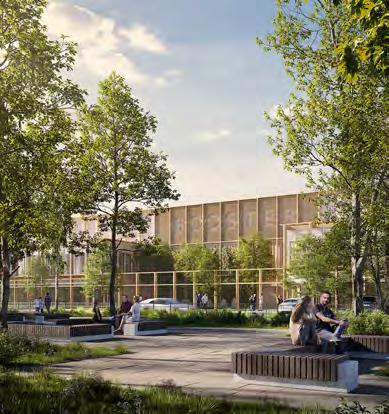
LOGISTICS specialist Clarion Partners Europe has acquired a portfolio of eight modern logistics properties across Germany and the Netherlands for €270m, on behalf of one of its co-mingled funds.
The portfolio, totalling 241,400 sq m, was acquired from funds managed by Blackstone. Since March 2023, Clarion Partners Europe has now deployed, or committed to deploy, some €960m into high-quality European logistics assets.
Rory Buck, managing director, Clarion Partners Europe, said: “Germany and the Netherlands are logistics markets where we see significant opportunity given their favourable supply/demand dynamics.
“Since Q1 last year we have accelerated our investment activity and over the course of 2023 committed to acquire approximately €1bn of assets. With further significant capital to deploy, we are targeting a similar trajectory in 2024.”
The portfolio consists of six mod-

ern logistics assets in Germany and two similar assets in the Netherlands, which are close to major urban hubs and directly connected to major arterial routes.
Thorben Schaefer, director at Clarion Partners Europe, said: “This was a rare opportunity to acquire a significant Dutch and German portfolio of tenant-critical logistics assets, all located within a short distance of major motorway networks and population centres.
“Alongside strong day one income, the portfolio provides meaningful reversionary potential. Leveraging our proven asset management capabilities to undertake a range of leasing and ESG-led capex initiatives will enable us to capture this upside and future-proof the portfolio.”
Clarion Partners Europe was advised by Goodwin Procter, Drees & Sommer, Deloitte, Loyens & Loeff and CBRE. Eastdil Secured acted as adviser to Blackstone.
AS THE global economy continues to rapidly adopt artificial intelligence (AI), infrastructure to support these systems must keep pace. Consumers and businesses are expected to generate twice as much data in the next five years as all the data created over the past 10 years. This growth presents both an opportunity and a challenge for real estate investors, developers and operators, according to JLL’s Data Centre 2024 Global Outlook.
“As the data-centre industry grapples with power challenges and the urgent need for sustainable energy, strategic site selection becomes paramount in ensuring operational scalability and meeting envi-
ronmental goals,” said Jonathan Kinsey, EMEA lead and global chair, data centre solutions, JLL. “In many cases, existing grid infrastructure will struggle to support the global shift to electrification and the expansion of critical digital infrastructure, making it increasingly important for real estate professionals and developers to work hand in hand with partners to secure adequate future power.” Not only will this increased storage generate a need for more data centres, but generative AI’s greater energy requirements — ranging from 300 to 500+ megawatts — will also require more energy-efficient designs and locations, the report states.
 JLL’s Jonathan Kinsey
One of the German assets in Halle, near Leipzig
Designs for Booster Zabrze
JLL’s Jonathan Kinsey
One of the German assets in Halle, near Leipzig
Designs for Booster Zabrze

11.10
16.45
16.20
By
10.00
11.00
12.00
14.10
14.10
Faire
14.00
16.00
Table-ronde
14.10
16.00
16.10




REAL estate investment manager Barings has acquired a 210,000 sq m plot of land in a prime location near Lisbon from Saint-Gobain Group on which it will develop one of the largest logistics parks in Portugal. The site has been purchased on behalf of Barings’ second real estate European value-add fund (BREEVA II).
The scheme will consist of 85,000 sq m of logistics space with a flexible layout and will target high sustainability credentials, including BREEAM Excellent and carbon-reduction certificates. Located in Santa Iria de Azoia, an area with a lack of Grade A logistics supply in the Portuguese capital, Barings will develop the scheme together with one of Europe’s leading logistics real estate developers as development manager.

LASALLE Investment Management and Swiss Life Asset Managers have created a joint venture focusing on the German logistics market.
The venture will recapitalise a €320m seed portfolio of five Grade A fully-let logistics assets contributed by Swiss Life Asset Managers and seek to acquire and develop additional logistics assets.
Swiss Life Asset Managers will act as the asset and investor-developer manager and the insurance arm of Swiss Life will retain a minority equity stake in the aggregate portfolio. The five seed assets, across the Rhein-Ruhr, Koblenz and Zwickau regions, have a total lettable area of 236,000 sq m with 100% CPI-indexed rents.
Mathias Malzbender, managing

director, LaSalle Global Solutions, said: “This investment and partnership with Swiss Life Asset Managers provides us with an exceptional opportunity to expand in one of the most sought-after sectors in Europe.
“Swiss Life Asset Managers is a sophisticated and valued partner, and we look forward to building a successful relationship and continuing the success of this portfolio.
“Given that the German logistics market is among the top-performing in Europe, focusing and expanding in this region has long been a priority for us at LaSalle.”
Per Erikson, head of real estate at Swiss Life Asset Managers, added: “We are pleased to partner with LaSalle and create long-term value for our stakeholders. Our unique insights and access to the investment market as well as our development expertise have become a differentiating feature and a competitive advantage.”
GERMANY’s Garbe Industrial Real Estate has established a new light-industrial business line, with Henning Reusch at the helm. The company will use its new unit to acquire standing inner-city properties in the light industrial and business park segments, before subjecting the properties to extensive value creation and optimisation processes. Whenever gap sites are involved or demolitions become necessary, the measures to be implemented could even include property developments, the firm said. Reusch was most recently head of real estate management and is a member of the executive board.
Reusch said: “The idea behind the Light Industrial department is to pool all of our management competencies that involve light-industrial properties and business parks. This will let us offer services that are yet more specialised in this field to investors, to tap value-add potential for them, while simultaneously helping our tenants to modernise their premises and to adapt them to their requirements.”
Adrian Zellner, Garbe’s head of business development, added: “Henning Reusch brings experience in real estate management to the job, having lately been responsible for the whole of Germany at Garbe.”
 Garbe’s Henning Reusch
One of the assets in the German city of Koblenz
The site is in the Lisbon urban area
Garbe’s Henning Reusch
One of the assets in the German city of Koblenz
The site is in the Lisbon urban area
As the leading communications agency for the BUILT ENVIRONMENT, we’re here to help.
To access the sixth edition of EUROPE’S MOST TALKED ABOUT CITIES and learn more about our specialised City Strategy Unit go to

DESPITE the monetary headwinds and continued economic uncertainty around the world, there is a strong belief that the global real estate industry is at a ‘pivot point’, with improving prospects ahead for renewed investment activity, according to the latest Emerging Trends in Real Estate Global Outlook 2024 from PwC and the Urban Land Institute (ULI).
The report amalgamates three regional reports, which canvassed thousands of real estate leaders across Europe, the US and Asia Pacific, and will be launched today at MIPIM.
Lisette van Doorn, CEO, ULI Europe, said: “This year’s report indicates that the market is beginning to get to grips with a new era of higher interest rates, and how this will need to impact pricing levels. Depending on the level of distress that might emerge, this may actually help the implementation of the ESG and, especially, the decarbonisation agenda, with potential buyers in a stronger negotiation position to incorporate the required capital expenditure.” However, investment activity is

also subject to varying degrees of uncertainty from geopolitical factors, with elections planned in more than 60 countries, and wars in Ukraine and Gaza continuing to impact sentiment. Geopolitical uncertainty may have implications for global capital flows, with Asia Pacific markets seen as the likely beneficiaries in the short term.
Moreover, the industry needs to refinance an immense debt burden of around $1.2tr (€1.1tr) in the US alone, and the deployment of ‘rescue capital’ will be a significant factor in the global narrative in 2024.
The report notes that while the industry has been in ‘wait-and-see’ mode for the last two years there is what is described as a ‘great reset’ that goes well beyond the industry adapting to the new era of higher-for-longer interest rates, with many of the more progressive players taking the opportunity for a radical re-think of what will make real estate fit for purpose in the long term.
Many are marking a clear preference for more alternative property sectors, and numerous respondents have indicated that the driver of investor behaviour is increasingly about ‘the three Ds’, demographics, digitalisation and decarbonisation. This is bolstering the investment case for housing, logistics and alternative sectors, notably data centres, and in turn complements the industry’s environmental, social and governance (ESG) agenda, though market conditions may slow progress on ESG compliance.
• Emerging Trends In Global Real Estate In 2024 And Beyond, on the Leaders’ Perspective Stage, Tuesday, March 12, 16.10











STUDIO Egret West has been appointed to lead a multi-disciplinary team to develop a Neighbourhood Development Framework (NDF) for Holt Town in eastern Manchester, UK.
Manchester City Council is working with Homes England and Greater Manchester Combined Authority to develop the new plan, which is being formulated to help guide the long-term investment plan for regeneration after a procurement competition was launched in October 2023, attracting international interest.
Holt Town sits between Manchester city centre and the established investment area in East Manchester which includes Sportcity, the Etihad campus and the new Co-op Live Arena and the scope of the plan will cover 30 ha of post-industrial brownfield land, redundant infrastructure, canals and heritage assets.
The regeneration programme will celebrate the area’s existing waterways, which create a true sense of place, while harking back to the industrial history of the area, according to Manchester City Council.
The regeneration vision is to transform the area into a sustainable, digitally driven new town within the city, with capacity for around 4,500 new homes. The NDF will
propose green public space that will include designs for future living, underpinned by good health and wellbeing principles, including new active-travel routes.
The draft plan will be prepared in the coming months before consultation later this year and the Holt Town regeneration opportunity is being presented at the Manchester stand at MIPIM.
Studio Egret West will be leading a team which includes Deloitte, MVRDV Next, Turley, AKT II, Hilson Moran, and Deetu and Hatch, which will offer a blend of local, national and international experience to the programme.
“The successful submission reflects Holt Town’s potential to create a new town in the city for a growing Manchester. It mirrored our own vision and ambition to ensure we celebrate the area’s heritage while creating new opportunities for digital investment, affordable homes and low-carbon features that will future-proof this new neighbourhood,” Bev Craig, leader of Manchester City Council, said.
Manchester City Council will be discussing the Holt Town regeneration opportunity as part of the Manchester What Next? panel at MIPIM today at 14:15, on the Manchester stand.



















CANADA’s ‘hidden gem’, the City of Mission, British Colombia, is attending MIPIM for the first time to showcase its award-winning Waterfront Revitalisation Masterplan, according to Mayor Paul Horn. “This visionary project aims to transform 3.5 km of riverfront and 296 acres of land into a vibrant nexus of industry, commerce, residential living and community space,” Horn said. “With a focus on innovation and sustainability, Mission’s waterfront will emerge as a premier destination for investors seeking unparalleled opportunities in Western Canada.
“Major investments in infrastructure improvements in and around Mission from other levels of government are already taking shape to support and partner on the future growth that is expected.”
Horn said that while the neighbouring city of Vancouver was perhaps better known internationally for its “stunning landscapes and top-tier amenities”, MIPIM would be an excellent opportunity to put Mission on the map. “We are one hour to the east of Vancouver and offer the same captivating beauty and increasing business prospects,” Horn said. “I’m looking forward to the conversations that will be happening at MIPIM relating to our Waterfront Revitalisation Masterplan and for the bigger dialogues that will be happening around housing, development, sustainability, economic investment and social responsibility.” He added: “When I’m not attending our booth, I’ll be a part of leadership discussions and learning from peers across the
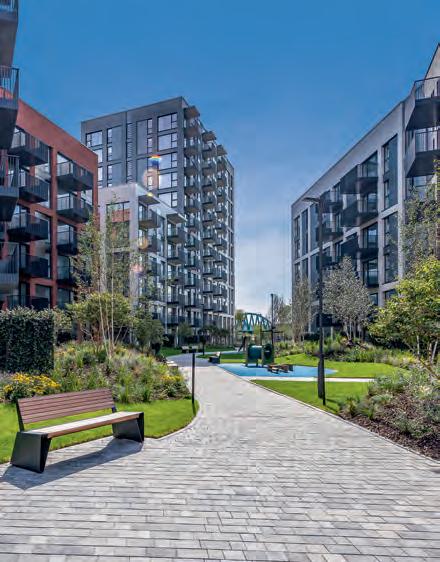

world on topics that are close to my heart.”
Horn said that waterfront revitalisation projects had a track record of success worldwide, and that his team anticipated the same outcome for the City of Mission. “This plan is essentially a set of long-term strategies seamlessly integrated into the City’s official community plan,” he said. “Together, these strategies encompass policy, partnerships and infrastructure, forming a solid framework for future development.
“We also recognise the importance of authenticity, collaboration and strong relationships in driving success. By fostering genuine partnerships and positive community connections, we aim to achieve meaningful progress and lasting impact.”
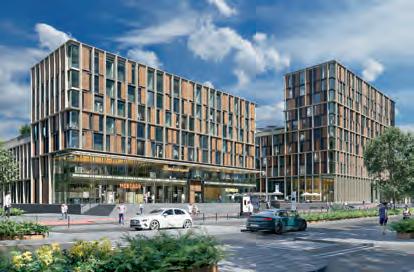







A MAJOR programme to deliver over £5bn (€5.8bn) of development projects is under way in and around Fleet Street in The City of London.
Some 3.25 million sq ft (302,000 sq m) of property within the historic quarter of London is undergoing transformation, renovation and redevelopment, under a masterplan which the head of the local Business Improvement District (BID) is in Cannes to showcase to the markets.
Lady Lucy French, CEO of the Fleet Street Quarter BID, is at MIPIM to highlight the “renaissance” lifting the area and to meet with potential partners and investors. She said: “An area with an extraordinary capacity for re-invention, this historic pocket of London is
set to undergo a radical transformation over the next 10 years.
“This renaissance will be so bold it will put the area back not just on the London map, but the UK map as one of the most sought-after mixed-use destinations.
“MIPIM provides a unique moment for us to showcase our area to some of the most influential global investors, developers, and agents in real estate that we wouldn’t usually encounter.”
Lady French is driving an agenda to make the area a “centre of major transformation” and create over 25,000 additional office jobs through strategic real estate development.
At MIPIM she will outline a vision based around four strategic objectives which include a focus on emerging technologies as drivers of
change, and ESG-led future growth. She said that “as real estate steps up efforts on ESG, we will demonstrate how sustainability is at the heart of what we do with a commitment to provide opportunities to develop skills and promote innovation in the area”.
Visitors to the Fleet Street Quarter BID stand will be able to access a VR capsule which will provide them with a “window into the emerging sectors choosing to locate in the Fleet Street Quarter area”. Fleet Street Quarter BID represents some 350 businesses in a 43-hectare site around a road once famous as the home of the newspaper industry. The street links an area from the Royal Courts of Justice to the west, to St Paul’s Cathedral at its eastern boundary.



Subscribe to Property Week at our MIPIM stand and get your first 3 months for just £20 plus a free expandable silicone water bottle.
This gift will be your ideal bottle for MIPIM - start out full and shrink it down as the day goes on.
Subscribe now to get:
Instant access to propertyweek.com
Weekly digital magazine (47 issues a year)
Property Week app on multiple devices
Tailored newsletters of your choice
Special features and supplements
PLUS £100 off all future Property Week conferences
Subscribe here using the QR code, and come to our stand (Stand 10, London Stand) to show your order confirmation and collect your water bottle.
CORPORATE real estate leaders are increasingly embracing the need for “positive, inclusive and sustainable” offices, according to Martina Williams, EMEA head of consulting and head of JLL Work Dynamics DACH and CEE and JLL. She said:
“They already recognise that functional, aesthetic office design and offering target-group specific amenities are instrumental in increasing the utilisation of a building. Landlords will therefore benefit by providing relevant amenities or any cash incentives to allow the retrofitting and reconfiguring of offices.”
Williams added that technology-forward offices were increasingly preferred by tenants for a range of reasons. “Hybrid working experiences are inherently tech-enabled. For commercial real estate leaders, and in the implementation
of hybrid, tech has been one of the key drivers of change.” She added:
“Over 80% of real estate occupiers, investors and developers, reveal that they plan to increase their real estate technology budget in the next three years.” Some of this process would necessitate adding professionals to teams, she noted.
“The role of building operators is becoming more essential to harvest the planned outcomes. This needs solid training and upskilling.”
Furthermore, there would be space for cross-industry collaboration, she noted. “There are multiple proptechs who provide AI-enabled solutions helping to reduce carbon footprint, operating costs and increase people experience within the buildings.”
A further driver for the expansion of technology applications in of-
fice real estate is incoming legislation connected to sustainability and the built environment’s carbon footprint, she said. “The growing impact of climate change and regulatory pressures will force corporates to act in 2024. Organisations are under increasing pressure to demonstrate that they are operating sustainably, and how they can measure the value that activities bring back to their organisation and wider society.
“A big part of this links to tech — and how data can now be used for tracking, monitoring and even predicting performance of their buildings — energy and waste management systems, building automation and control, sensors, smart meters, rainwater harvesting systems.
“By adopting these sustainable technologies, corporates can significantly reduce their environmental impact, improve their sustainability credentials and also generate significant cost savings over the long term.“

 JLL ‘s
JLL ‘s

Data on new loan originations, fund launches, closes & institutional investor mandates
Insight on what borrowers want, what lenders are doing & the most viable strategies
Analyze where capital is flowing, how loans are being structured & why
TAKE-UP across 22 European office markets fell 17% against the pre-pandemic average in 2023, according to new analysis by Savills. The trend was driven by a lack of prime space for occupiers to move into, according to the research, although Oslo, Milan, Lisbon and Paris’s CBD all bucked the trend by recording increases in their take-up. Mike Barnes, associate director in Savills European research team, said: “Oslo, Milan and Lisbon’s office markets were all stand-out performers in 2023, but even though we saw take-up fall by an average of 17% last year this is lower than we projected at the start of the year.
“We expect 2024 will see prime rents growing in markets where

the development pipeline remains scarce, as occupiers compete for the best space to appeal to employees and reduce carbon emissions, but remaining flat where office space does not meet corporate and environmental requirements.”
According to the international real estate advisor, prime European office rents rose an average of 4.3% in 2023 despite vacancy rates rising 60 basis points year-on-year to 8.4%, demonstrating that the flight to quality trend continues. Occupiers are reducing space in lower quality buildings and competing on an ever-smaller amount of best-in-class space in key locations.
Christina Sigliano, EMEA head of global occupier services at Sav-
095_REVUE URBANISME8N_PIM
FORMULE PAPIER + NUMÉRIQUE
135 € / an (66 € pour les étudiants)

ills, added: “The last 12 months saw more space returned to the market as occupiers consolidated their hybrid working policies and released space that either doesn’t meet their current standards or is situated in less than ideal locations, leading to an increase in the average vacancy rate.
“However, given in the same period the average prime office rent rose indicates that demand is there for top quality offices, but take-up has been supressed by a lack of good stock, which has been hampered by a shortage of construction activity in most markets. Landlords delivering top-spec offices into these locations should therefore see healthy demand.”

8 numéros par an et des suppléments (6 bimestriels et 2 hors-séries)
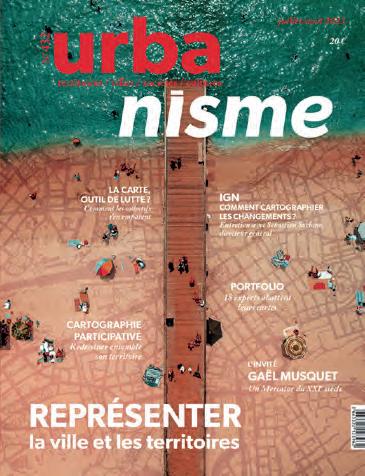



Pour nous contacter : urbanisme@urbanisme.fr 01 45 45 45 00
Pour vous abonner, commander un numéro, s’inscrire à notre newsletter : www.urbanisme.fr

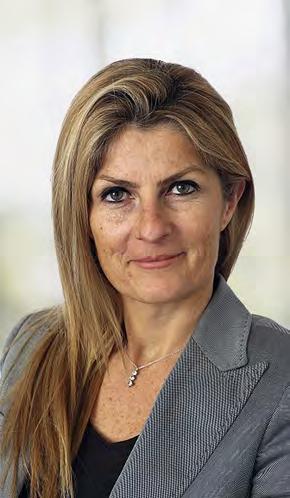

FORMULE NUMÉRIQUE 99 € / an (48 € pour les étudiants)













Le succès du bon d’État rassure les marchés sur la dette belge pp. 18-19











Mardi
Hausse du précompte immobilier : les huit communes bruxelloises se défendent
“Aujourd’hui, avec ce nouveau médicament, je pourrais presque dire : ‘quand j’avais la muco’.”
Raphaël Deby Patient atteint de la mucoviscidose pp. 16-17












“Le plus bouleversant, c’est de constater à quel point des adolescents qui ont vécu si peu ont déjà tant souffert.”

Jérôme Colin Auteur belge p. 35

























Chaque jour en ligne, chaque semaine le journal


Pass découverte
Profitez d’un mois d’essai gratuit, sans engagement
Accès illimité à tous les articles : Analyses, entretiens, dossiers, ainsi qu’aux meilleurs articles en français du Financial Times et de The Economist
DELEGATES at this year’s MIPIM are keenly anticipating cuts to interest rates and the stimulation such moves will provide the market, according to Gavin Neilan, founding partner and chief investment officer at Deutsche Finance International.
“The topic on everyone’s mind will be central bank rate cuts and the speed at which they will begin to fall, hopefully kickstarting the transactions market after an extended period of muted activity across all markets,” he said.
“As interest rates fall we can expect to see an acceleration of transaction volumes in the second half of the year, albeit slowly at first given price discovery remains challenging given current bid-ask spread.”
 Neilan
Neilan
Indeed, Neilan said that pricing would inform discussions about all real estate sectors.
“As always, we will be discussing the sectors and geographies we like and where we think we can unlock relative value, although this time it will be centred around where we think repricing has concluded,” he said.
“In terms of sector themes, we think the main areas of focus will be how to tackle living’s sizeable supply-demand imbalance; addressing challenges in the office market; whether retail is investable again; and the continued growth of alternative sectors such as data-centres and energy transition.”
In addition, Neilan said that he fully expects environmental, social and governance (ESG) strategies will remain a key theme.
“We expect there will be a deeper exploration of conversion opportunities for stranded office assets as the working habits and ESG requirements of occupiers become more entrenched,” he said.
“We may also see an acceleration of investment into data centres and sustainable energy and decarbonisation infrastructure in continental Europe as the lines between real estate and infrastructure investments continue to blur.”
Neilan added: “As a place to efficiently meet all players from the industry, including those from outside Europe, MIPIM is a spring thermometer that helps us gauge sentiment, identify trends and understand what activity will be possible over the next 12 months.”
 Deutsche Finance International’s Gavin
Deutsche Finance International’s Gavin

La revue internationale d’architecture, design et communication visuelle
La rivista internazionale di architettura, design e comunicazione visiva
The international magazine of architecture, design and visual communication
Janvier-Février/Gennaio-Febbraio/January-February
Bimestriel/Bimestrale/Bimonthly
www.arcadata.com
176 - 2024

La revue internationale d’architecture, design et communication visuelle
La rivista internazionale di architettura, design e comunicazione visiva
The international magazine of architecture, design and visual communication
A DELEGATION from Invest Newcastle is at MIPIM this week on the hunt for international investors “with an appetite to think beyond traditional investment and embrace the ambition to achieve transformational social change”.
Jennifer Hartley, director, Invest Newcastle, said her team and its partners are keen to engage with investors that are passionate about urban regeneration, city-centre transformation and levelling-up initiatives that power sustainable, connected and inclusive economic growth.
“We know that the competition for global capital is fierce and that investors have an abundance of choice,” Hartley said. “But our message is clear: not only can you generate returns by investing in Newcastle, but you can also play a real role in delivering positive and transformative change in a city that will embrace it.”
Invest Newcastle, part of the NewcastleGateshead Initiative, was set up to help business to locate in the region. It champions the northeast of England on a national and international stage, promoting Newcastle as a collaborative and innovative city.
Its vision is for a city which leads the world in knowledge-intensive industries, is committed to social value and where public
private partnerships combine to make Newcastle a better place to live, work and visit. With a new North-East Mayoral Combined Authority, Invest Newcastle says the city region will soon benefit from devolved powers and more autonomy to attract investment and drive growth.
Invest Newcastle is not in Cannes by itself. More than 20 public and private sector partners from the region are joining the body and will be participating in a programme that covers the themes of regeneration, social impact, devolution and foreign direct investment, in addition to profiling key developments across the region, including Pilgrim Street, Gateshead Quays, Durham Cricket Club and Forth Yards.
On Thursday, March 14, for example, the delegation will host a session showcasing the city’s transformational plans for the iconic River Tyne, which are expected to unlock £2bn (€2.34bn) in investment — including a £350m state-of-the-art arena. The new arena complex is also expected to unlock opportunities for inner-city housing. Sponsors of Invest Newcastle’s delegation include NCG, Northumbria and Newcastle Universities, Ryder Architecture, Avison Young, Eldon Square and Fenwick.











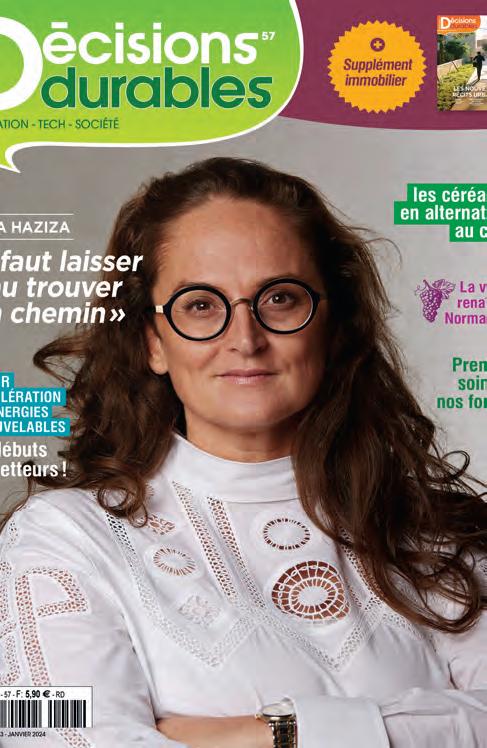


Nouveaux

WHILE there are promising signs that the worst of the travails facing the industry are easing, the real estate market is still facing a “bumpy” year ahead, according to James Boadle, senior vice president, Europe, at landlord and developer at Oxford Properties.
“I think the sentiment this year will be mixed,” he said. “While interest rate hikes have started to tame inflation and the longer end of the rate curve has started to tail off, macro headwinds persist and it’s likely to still be a bumpy year ahead with further repricing across our industry to come — albeit to varying extents dependent on sector and European market.”
He added: “I expect we will see increased distress as base rates will remain elevated for some time despite forecast declines and lenders lose patience with over-leveraged
30th May
capital-constrained borrowers, reducing the bid-ask spread between current, unwilling sellers and buyers. Credit and structured capital solutions will provide compelling risk-adjusted opportunities as near-term volatility continues.”
However, Boadle added that some sectors continue to offer reliable opportunities. “We continue to have conviction in the European logistics/supply-chain adjacencies, life sciences and UK residential rental sectors given the positive occupational dynamics that continue to present themselves in these sectors although, in all cases, stock selection is paramount,” he said.
In addition, Boadle said that there are interesting opportunities in the office market for companies that are willing and have the ability to take on develop-
ment risk. “The ability to leverage our track record and on-the-ground vertically integrated capability creates an opportunity for us as the market continues to re-price and begin to show an interesting basis from which to create high-quality product,” he said. Moreover, Boadle added, the days of investors being able to rest on their laurels appear to be over, with property companies required to engage meaningfully with their occupiers. “All forms of real estate have become increasingly operational — not just the alternatives — as a focus on customer relationships and a deep understanding of the occupational markets is required to drive income return and asset performance, with on-the-ground capabilities and local platforms critical to maximising the market opportunity that will present itself.”
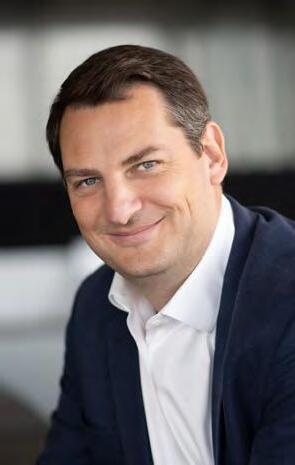

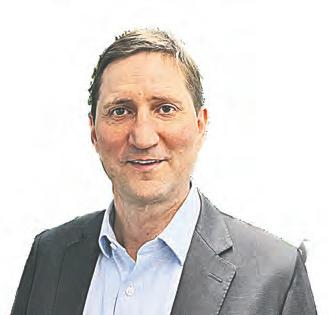
 Oxford Properties’
Oxford Properties’
JBC Média is the largest real estate and
publisher in
Canada. JBC Média est le plus important éditeur au Canada français, du secteur de l’immobilier et de la


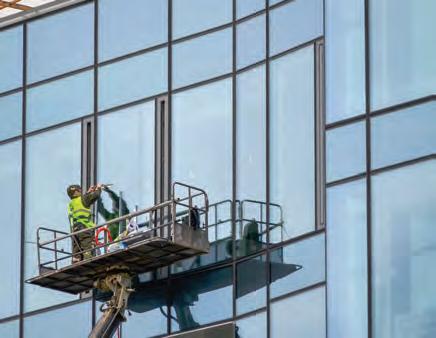






Des quartiers entièrement désertés à la nuit tombée, des bureaux vides deux jours par semaine : aujourd’hui, une partie de la ville s’éteint avec les ordinateurs.
Pour contrecarrer ce phénomène, des immeubles de plus en plus poreux avec l’extérieur et aux services mutualisés sortent de terre.
Suivez-nous workplacemagazine.fr
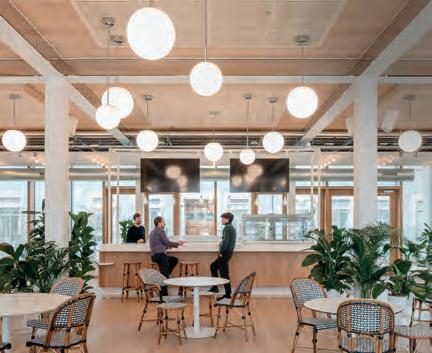


Je le découvre gratuitement
A l’occasion du MIPIM, Workplace Magazine vous offre ce numéro. Scannez le QR code et lisez-le en ligne !

THE INCREASED cost of debt is forcing property companies to become ever more operationally active in order to achieve meaningful returns, according to Andrew Coombs, CEO of Sirius Real Estate.
“We’ve had a decade of working with an unrealistically low cost of debt, leading to an unusually attractive arbitrage between low rates and implied property yields and enabling companies to produce most of their returns from the arbitrage rather than the operation of their property assets,” he said. “However, with this margin diminishing, unless you are generating strong returns from the operation of your assets, your business model is under threat. As traditional lenders continue to retrench,

corporates are having to turn to much more expensive, alternative options, creating small pockets of distress in some markets and presenting attractive opportunities to deploy capital for the right strategies and asset types.”
Coombs also warned that events beyond the real estate industry’s control will create strong headwinds in the year ahead. “At a macro level, this year is going to be defined by high levels of geopolitical risk,” he said.
“The war with Ukraine is continuing to impact policy, as are relations with Russia and China, and ongoing conflict in the Middle East continues to present a risk to shipping and global supply chains.” He added: “Although there is some



evidence for optimism across the first half of 2024, the second half of this year may see renewed political uncertainty as we await the results of a number of elections around the world, including in the US, UK and potentially Germany, due to the fractious nature of Germany’s SDPFDP-Green coalition government.”
As a result, Coombs predicts that the global real estate market will see a “very active” first half of the year but that transactions will contract again in the second half. “A potential slowdown in global economic activity in H2… may cause businesses to sit on their dry powder until there is more certainty in the markets,” he said. All of these themes, Coombs added, will be discussed in depth at this year’s MIPIM. “It is a chance for the real estate sector to come together at a global level to share insights around the latest market trends and drivers,” he said.
UNE SOLUTION DE DATAVIZ, UNIQUE EN FRANCE, DÉDIÉE AUX ACTEURS DE L’IMMOBILIER D’ENTREPRISE
ANALYSER : Visualisez et explorez les données de marché en temps réel* avec un niveau de détail inégalé (chaque transaction est détaillée)
*Source CFNEWS DATA, données compilées et structurées par nos analystes, vérifiées par nos journalistes experts du Real Estate
SEGMENTER : Filtrage des données par stratégie, régions, typologie d’actifs, investisseur, valorisation métrique...
SUIVRE : Suivi jour après jour des grandes tendances de l’investissement immobilier
LOCALISER : Cartographie complète des transactions en France avec géolocalisation
EXPORTER : Graphiques et transactions exportables & exploitables immédiatement (Excel, PDF, PNG, JPEG)




INSTITUTIONAL interest in social infrastructure and impact investing is growing and these undersupplied markets in both the UK and mainland Europe will present a huge opportunity for private capital to support the delivery of residential and healthcare real estate, according to Lisa Feifer, head of investor relations at Civitas Investment Management (CIM).
The financing landscape will be top of a lot of agendas, in particular the interesting acquisition opportunities presented as a result of near-term maturities, while a number of key trends will emerge, she said.
“First and foremost, the demand/ supply imbalance of residential healthcare assets is becoming
073_RLI_N_PIM
more severe, driven by an increasingly growing and ageing population. There is a critical need for private capital to invest into these markets to meet this demand, given the ongoing fiscal stress that many local authorities and communities are under,” she added.
“Helpfully, we are seeing more and more institutional investors looking to allocate capital to the sector, attracted by both the longterm, stable returns on offer, but also its strong social impact credentials. This ties in with the wider theme of global investor impact ‘buckets’ continuing to grow as they focus on real estate that delivers a strong social benefit.”
CIM is an impact investment firm specialising in long-term

sustainable returns by acquiring community-focused assets that deliver positive social outcomes. Its investments are supported by national governments and local municipalities and it has completed more than 130 transactions over the past three years.
Feifer said that for CIM this year’s MIPIM will provide opportunities to meet partners from around the world to discuss social infrastructure, including the merits of the asset class and the risk adjusted returns possible.
“It’s a great event for getting the pulse on the investment side, and meeting and learning from new groups where there may be possibilities to work together,” she said.




KRAINE.HUNGARY.ROMANIA.BULGARIA.CROATIA.SERBIA.MACEDONIA. POLAND.CZECHREPUBLIC.SLOVAKIA.ESTONIA.LIT .CROATIA.SERBIA.MACEDONIA.POLAND.CZECHREPUBLIC. SLOVAKIA.ESTONIA.LITHUANIA.LATVIA.UKRAINE.HUNGARY.R POLAND.CZECHREPUBLIC.SLOVAKIA.ESTONIA.LITHUANIA.LATVIA.UKRAINE.HUNGARY.ROMANIA.BULGARIA.CROATIA.SE TONIA.LITHUANIA.LATVIA.UKRAINE.HUNGARY.ROMANIA.BULGARIA.CROATIA.SERBIA.LATVIA.POLAND.CZECHREPUBLIC. MANIA.BULGARIA.CROATIA.SERBIA.MACEDONIA.POLAND.CZECHREPUBLIC.SLOVAKIA.ESTONIA.POLAND.CZECHREPUBLI ARY.ROMANIA.BULGARIA.CROATIA.SERBIA.MACEDONIA.POLAND.CZECHREPUBLIC. SLOVAKIA.ESTONIA.LITHUANIA.LATVI ACEDONIA.POLAND.CZECHREPUBLIC.SLOVAKIA.ESTONIA.LITHUANIA.LATVIA.UKRAINE.HUNGARY.ROMANIA.BULGARIA.C SLOVAKIA.ESTONIA.LITHUANIA.LATVIA.UKRAINE.HUNGARY.ROMANIA CROATIA.SERBIA.MACEDONIA.POLAND. UKRAINE.HUNGARY.ROMANIA.BULGARIA.CROATIA.SERBIA.MACEDONIA. POLAND SLOVAKIA.ESTONIA.LIT .CROATIA.SERBIA.POLAND.CZECHREPUBLIC.SLOVAKIA.ESTONIA.LITHUANIA.LATVIA.UKRAINE.HUNGARY.ROMANIA.BULG PUBLIC ESTONIA.LITHUANIA.LATVIA UKRAINE.HUNGARY.ROMANIA.BULGARIA.CROATIA.SERBIA.MACEDONIA A.LATVIA. HUNGARY BULGARIA.CROATIA MACEDONIA.POLAND.SLOVAKIA ESTONIA ERBIA.MACEDONIA.POLAND.CZECHREPUBLIC. SLOVAKIA.ESTONIA LATVIA HUNGARY.ROMANIA TONIA UKRAINE.HUNGARY.ROMANIA CROATIA.SERBIA MACEDONIA
Eurobuild Central & Eastern Europe, which has been active since 1994, is the oldest and most influential media group dedicated to the real estate and construction sector in Central and Eastern Europe.
If you need the most up-to-date and reliable market information or you are looking for business partners, then you’ve come to the right place.
We look forward to working with you!
Contact us at MIPIM!
Tomasz Cudowski Editor-in-chief

Elwira Soćko
Head of sales and business development






Abonnement sans engagement
Lisez l’Opinion sur tous vos écrans et retrouvez nos contenus
FLASHEZ POUR VOUS ABONNER !


LES AVANTAGES DE L’OFFRE
2
Explorez toute la richesse de l’Opinion
Par le biais de notre site web ou de notre application mobile, profitez d’un accès illimité à tous les articles réservés aux abonnés.
Accédez aux meilleurs articles de The Wall Street Journal sélectionnés et traduits en français par notre rédaction.
3
Feuilletez l’Opinion en avant-première Accédez à votre journal numérique dès 20h, la veille de sa parution.



Southern Europe has become an exciting arena for high-tech investments and growth industries, as well as offering buoyant core commercial real estate opportunities, writes Isobel Lee
While the Mediterranean region is often associated with a slower pace of life and a traditional approach to urban planning, smart initiatives all over Southern Europe are flipping the script.
Real asset investors are finding more and more opportunities in cutting-edge infrastructure in a range of countries, as Graham Matthews, CEO of infrastructure at global investment giant Patrizia explains. “We are living in a world in transition where digital infrastructure and new technologies are disrupting the way we live, work and do business across
the globe,” he says. “This digitalisation megatrend continues to create highly attractive opportunities for investors looking to capitalise on infrastructure assets delivering long-term resilient income alongside positive social impact within communities.”
Patrizia recently signed a deal to acquire an 85% stake in Atlantico, Italy’s third-largest independent smart streetlighting operator by number of light points managed. Pending regulatory approval, the transaction is the third Italian smart-streetlighting acquisition by Patrizia’s Smart City Infrastructure Fund, its single LP strategy with Dutch pen -
sion giant APG, and completes its €750m smart-cities investment programme across the US and Europe. Matthews adds: “The success of our €750m smart-cities investment programme underlines our commitment to driving the digitalisation of our economies and unlocking value for our investors through innovative smart city solutions.”
The acquisition further consolidates Patrizia Infrastructure’s market share in the Italian smart-streetlighting sector, with a combined commitment of €260m that includes investments in Ottima and Selettra in 2022. The portfolio is the second-largest independent streetlighting firm in Italy by light points managed across 200 municipalities, with potential to manage up to one million within five years and become a top national player.




Smart streetlighting is a significant contributor to the European Union’s policy objectives on energy efficiency and reduction of carbon emissions. Italy is one of the highest consumers of public lighting in the EU due to its existing network of overpowered lamps containing 150W lightbulbs, while it has the second-highest number of lighting points. By upgrading their streetlights with the latest LED technology, towns can achieve energy savings of over 50% and minimise harmful substances from their communities, such as ultraviolet radiation and CO2 emissions.
Matteo Andreoletti, head of infrastructure equity, Europe and North America at Patrizia adds: “As a sector, we have high conviction in smart streetlighting as it is central to the urban and energy transitions shaping our economies, while also offering our investors core infrastructure exposure that provides attractive risk-adjusted returns and inflation protection.”
Another firm focusing on smart opportunities in Southern Europe is private investment house Azora. The firm recently launched the Quetta Data Centers platform in collaboration with Core Capital, to invest more than €500m in the construction of a network of six highly efficient Edge data centres in Spain and Portugal.
On completion, the portfolio’s data capacity will exceed 60MW and will utilise 100% renewable energy to create Iberia’s first eco-efficient network of data centres, with a power usage effectiveness rating of less than 1.15.
Santiago Olivares, partner in charge of energy, infrastructure and sustainability investments at Azora, says: “The launch of Quetta is part of our strategy of investing in sustainable infrastructure.
“The digitalisation of the economy offers very attractive investment opportunities in the data-centres sector, especially those aimed at companies that offer streaming content, gaming, augmented reality, internet of things and other technologies such as artificial intelligence that will experience strong growth as the speed at which society and business consumes data accelerates.”
Edge data centres represent a new category of data centres that are characterised by offering technological solutions to companies that require low latency in data processing and transmission. These data centres are located near large urban conurbations, close to end consumers, in order to reduce data traffic with large hyperscale data centres, which are usually located at a considerable distance from end users.
The six assets are predominately located in Madrid, Barcelona and Lisbon, enabling Azora to take advantage of the excellent local market opportunities, driven by the peninsula’s geolocation, access to renewable energy sources, and proximity to wider communication infrastructure, including intercontinental submarine cables.
Quetta’s target customers are companies with high data traffic, such as content providers, IoT or gaming, which

require low latency — that is very low delay times in the transmission of information packets.
Quetta has already begun construction of the first data centre in Madrid, located in Tres Cantos, and is in advanced stages of negotiations to complete the acquisition of the land and the contracting of the construction of the centres.
Other firms building on the appeal of industrial assets in Southern Europe include Partners Group, Investire SGR and Impresa Tonon, who recently announced a logistics partnership. The three partners will jointly invest in five modern logistics facilities in Northern Italy, totalling 100,000 sq m. The projects are situated within the Veneto Corridor, which connects Italy, France, Portugal and Spain to the main production and logistics hubs of Central and Eastern Europe and the Baltic countries. The platform prioritises ESG criteria, focuses on first and last-mile logistics, and aims to achieve LEED Gold compliance.

Across the Mediterranean region, dynamic government bodies are attracting businesses through investment permits and policies supporting greater transparency and industry digitalisation. Marinos Giannopoulos, CEO of investment agency Enterprise Greece, notes that Greece’s economy has undergone a “profound transformation” to become a forward-looking and business-friendly country in recent years. “The Greek real estate market remains a prime investment destination, offering value, growth and diversification, along with new and refurbished office spaces, industrial and logistics infrastructure like warehouses, main ports, regional airports and roads, ESG-driven hospitality projects, luxury second homes and sustainable investments,” he says. With foreign direct investment (FDI) surging — FDI increased by 68% yearon-year between 2021 and 2022 — Giannopoulos sees this market only maturing further. “Greece’s real estate landscape offers lucrative opportunities for partnerships, suitable for prime residential properties, commercial ventures, or high-yield hospitality and tourism projects,” he says. “That is why we invite potential investors to explore Greece’s real estate market. This vibrant and growing market is an ideal investment destination for those seeking a dynamic, beautiful Mediterranean setting.”
Patrizia is investing in smart Italian streetlighting


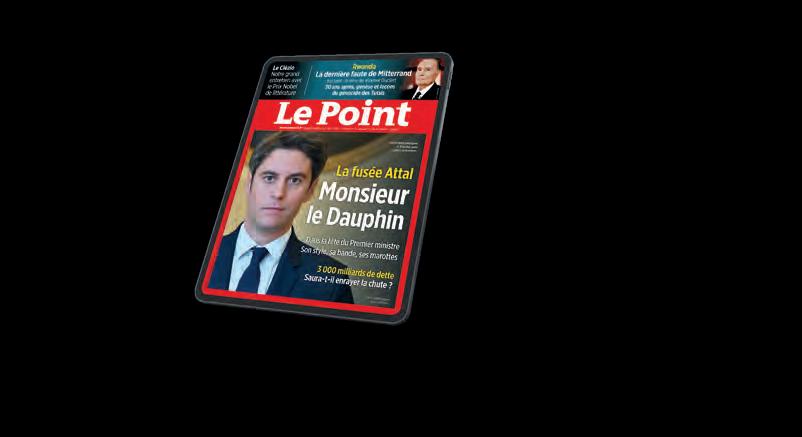
Des contenus variés pour s’informer à travers le regard aiguisé de nos journalistes.
La version numérique du journal en exclusivité dès le mercredi soir !
La première année -50 %
(sans engagement)
Les rendez-vous de la rédaction : lettres du Point, newsletters, palmarès, conférences en ligne…
Le journal papier livré chez vous tous les jeudis (en option).
SCANNEZ CE QR CODE

RENDEZ-VOUS SUR LE SITE :
directabo.lepoint.fr/partenariats

• Intended for participants without a stand
• Include a meeting area, hosting staff to help organise your meetings and free coffee
Sponsored by :
• Exclusively for visitors with a Premium Pass, who can bring a guest
• Includes catering & drinks, boosted wifi and a dedicated staff
Sponsored by :
• Exclusive club, by invitation only
• Includes refreshments and a dedicated staff
• Dedicated to journalists
• Includes computers, Internet connection, printers and the assistance of a permanent staff member
• MIPIM is delighted to offer to its participants free shuttle from hotels located outside Cannes to the Palais des Festivals.
• 7 routes & 40 hotels served from early morning to late night
- Mandelieu - La Napoule
- Cannes la Bocca
- Le Cannet
- Juan-les-Pins
- Sophia Antipolis
- Nice
- Cannes

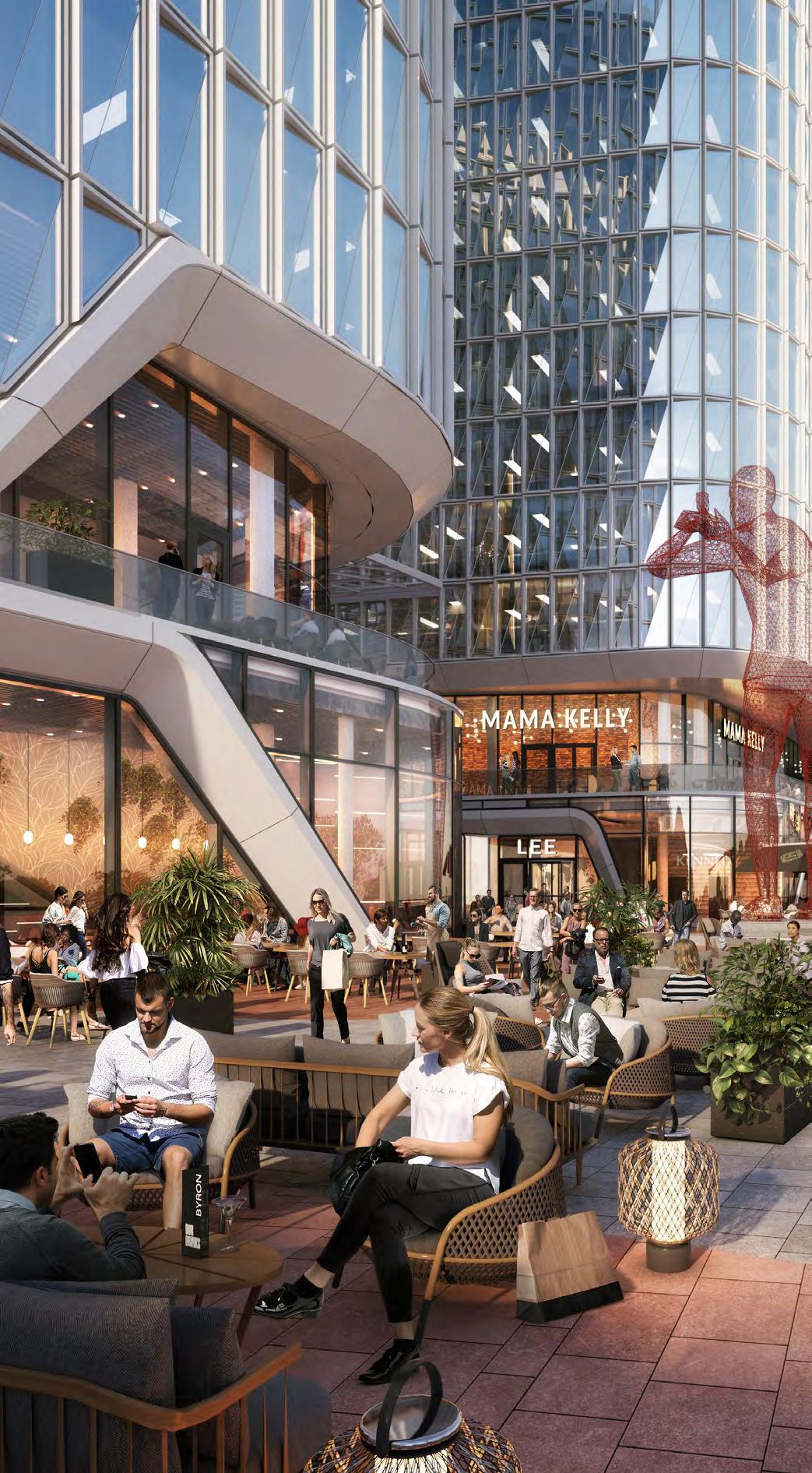

to showcase the Paris Region, which is using four pillars as the development platform Work and Live, Invest, Visit and Film.
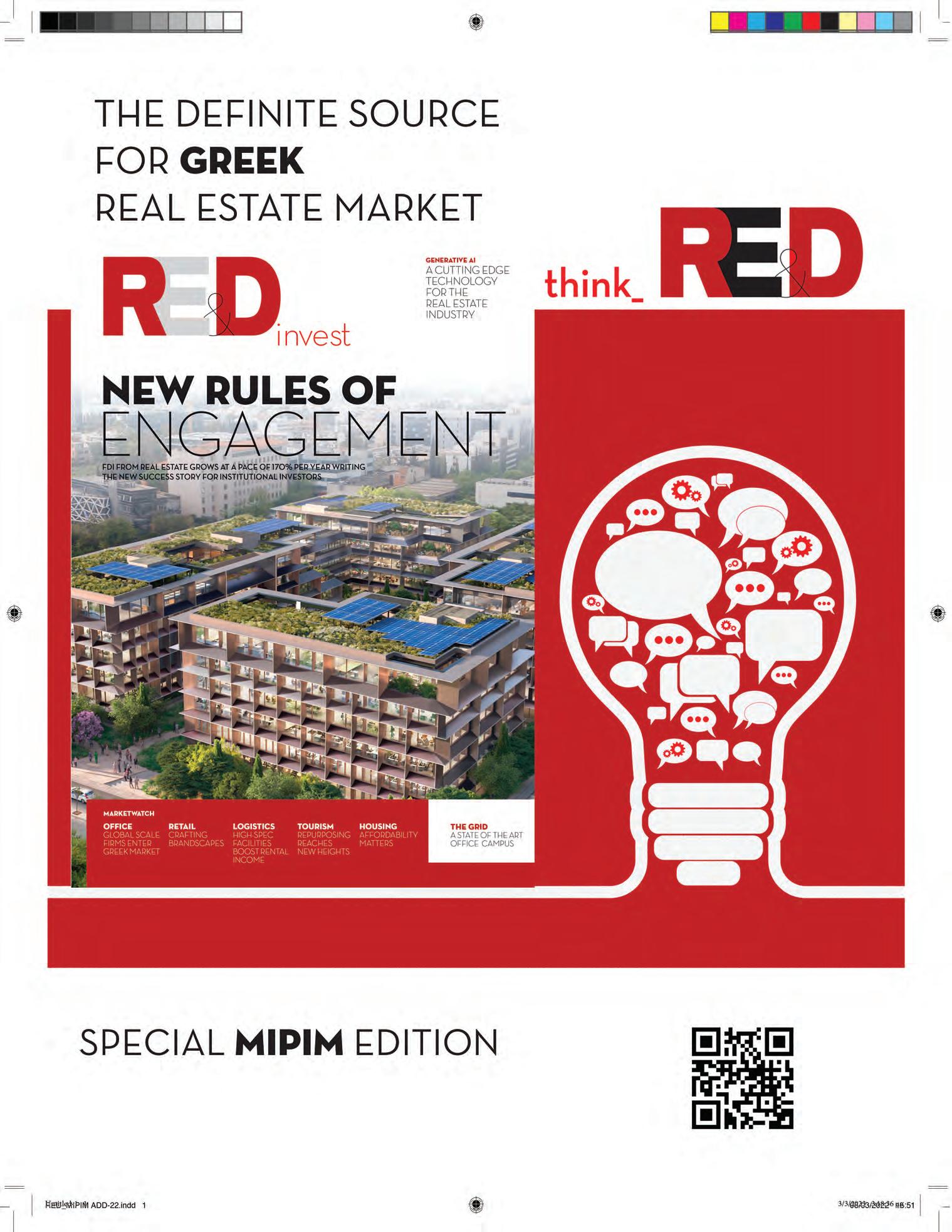

North Paris, and in particular the Seine Saint-Denis area, will host six competition venues and the Olympic Village, with the districts of Saint-Denis, L’Île-Saint-Denis and Saint-Ouen to be completely regenerated over the next seven years. In addition, around 1.5 million sq m of new office space is planned for the Pleyel district of Saint-Denis, as public and private investors and real estate developers work with existing infrastructure in order to minimise costs, designing sustainable spaces and providing housing, offices and retail space.
After the Games, the infrastructure will be able to host other sporting and cultural events, while the Olympic and Paralympic Village and Athletes’ Village in L’Île-Saint-Denis will be transformed into housing, student accommodation and community infrastructure, with 11,000 housing unit s, 120,000 sq m of office space, 3,200 sq m of retail space, a 3 ha landscaped park, 7 ha of green space and a renovated gym.
The delivery of three new metro lines and the extension of line 14, scheduled for 2024, played a major role in Paris’ bid and The Grand Paris Express is Europe’s largest low-carbon infrastructure project, and will accelerate the urban renewal process across 140,000 sq km of districts located within less than a kilometre radi-
us of each station on the line. This represents a total development potential of 32 million sq m. Between now and 2030, more than 100 real estate projects and 42 urban policy districts will be built in the vicinity of the stations and The Grand Paris Express should pave the way for 250,000 to 400,000 housing units in the Paris Region.
In the Middle East over recent years attention has increasingly turned to Saudi Arabia, which is going through a major real estate-led development boom. Perhaps the best known project is Neom, a 26,500 sq km region in northwest Saudi Arabia that features diverse regions, including ‘cognitive’ cities, luxury islands and coastal and mountain destinations.
Neom is showcasing two key projects at MIPIM: The Line and Trojena. The Line is Neom’s linear city, stretching 170 km across the diverse landscape but just 200 metres wide. It will be home to nine million people on a footprint of just 34 sq km, with a series of walkable, five-minute neighbourhoods with no cars or roads. Trojena is a year-round mountain region,
 The Las Vegas Sphere, Nevada © Harold Litwiler
The Las Vegas Sphere, Nevada © Harold Litwiler
with elevations of up to 2,600 m, and consists of six clusters — Gateway, Discover, Valley, Explore, Relax and Fun — plus the Gulf’s first outdoor ski resort, which will host the 2029 Asian Winter Games.
Among the other projects is Diriyah, a 14 sq km mixed-use development located just 15 minutes from capital Riyadh, while Ha’il Regional Development Authority is creating a 50,000 sq m tourist hotspot at Jubbah, and New Murabba is being developed as Riyadh’s new downtown.
In addition, AlWadi is a mixed-use development situated in Abha within the Aseer region. Aiming to capitalise on Abha’s environmental and cultural attributes, is being developed by ARDARA, a wholly owned subsidiary of the Saudi Public Investment Fund. The first phase of AlWadi is expected to be completed over the next three years and will include the development of 2,000 residential units, luxury hotels and commercial spaces. AlWadi will have over 16 km of waterfront mixed-use development. And a second Sphere could appear in the Middle East after planners blocked proposals for a project in London. The Sphere at the Venetian Resort, Las Vegas, previously known as the MSG Sphere, opened to the public with a series of concerts headlined by U2 on September 29 last year. Designed by stadium architect Populous, the $2.3bn (€2.1bn) project is located east of the Las Vegas Strip and is connected to the Venetian resort complex.
Plans for a second sphere in London, close to the Olympic Stadium in Stratford, were refused planning permission and in late 2023 the developer suggested that it could locate the next structure in Abu Dhabi. Meanwhile, Hamburg and Milan are two focal points in Europe. Unibail-Rodamco-Westfield’s (URW) major urban regen-
eration project Westfield Hamburg-Überseequartier is set to open this year on April 25. Transforming a central part of HafenCity in Hamburg, the new development will blend shops, hotels, restaurants, leisure areas, offices, homes and a cruise-ship terminal, connecting work and living space with a large entertainment and retail offer.
URW says that the retail and leisure is already 90% leased and Westfield Hamburg-Überseequartier will also feature three hotels, while Rhubarb Hospitality Collection (RHC) has signed on as an anchor tenant for the fine dining cluster. The destination has been designed and built using sustainable materials and processes, with all buildings rated BREEAM Excellent and the office buildings DGNB Gold Standard.
Late last year, revised multi-billion euro plans to turn a former industrial site on the outskirts of Milan into a new city district called Milano Santa Giulia, were outlined.
Milano Santa Giulia will feature more than 3,200 homes, 91,000 sq m of office space, the city’s third-biggest park, two retail centres, schools, hotels, a new campus for Milan’s music conservatory and a sports arena that will host the men’s ice hockey at the next Winter Olympics in 2026.
The project will cost €2.5bn to develop and is estimated to be valued at €3.5bn once complete. In June last, developer Lendlease MSG Heartbeat Fund took control of the project by acquiring full rights from Risanamento and is now looking for project partners.
“The new fund lays the foundations for attracting third-party capital that we can intercept among the numerous institutional investors who already participate in our investment platform around the world,” says Graeme Parry, CEO of Lendlease Italy.
“The development will initially be financed by Lendlease’s capital, but the project represents an interesting investment opportunity

capable, at the same time, of responding to the housing and service needs of a sustainable and inclusive neighbourhood.”
Milano Santa Giulia is Lendlease’s second ongoing urban regeneration project in the city’s outskirts.
It is also developing the MIND district,
while separately there are new plans to enlarge the San Siro stadium to jointly host AC Milan and Inter. Initial plans to demolish the old stadium and regenerate the area as a park district with a new stadium have been remodelled after the San Siro was saved by city authorities.
 Trojena’s breathtaking mountain views
© Neom
Trojena’s breathtaking mountain views
© Neom
”What others thought was waste, we used to build our booth”
Caroline Strand, CEO, Stockholm Business Region
Come visit our booth, R7 G26, and let’s talk about investment opportunites that can generate meaningful change!

